FME Flow Certified Professional

An FME Flow Certified Professional demonstrates advanced expertise with FME Flow.
To apply to become an FME Flow Certified Professional, you must be a current FME Certified Professional. You should also be familiar with the material below. Exam questions will be mostly drawn from this content. After reviewing all the content, sign up for the FME Flow Certified Professional course below, review the application checklist, pay the application fee, and take the exam.

FME Certified Professional
An FME Certified Professional demonstrates an understanding and expertise of the FME platform, with a focus on FME Form.

FME Flow Administration
Learn how to install and administer an FME Flow installation and its users.
Learning Paths
Advanced
On-Demand
FME Form
FME Flow Admin

FME Flow REST API
Use the FME Flow REST API to build your own web applications and solve data challenges.
Learning Paths
Advanced
On-Demand
FME Flow
FME Flow Rest API

FME Flow Documentation
You should be familiar with the content of the FME Flow documentation.
FME Flow Documentation
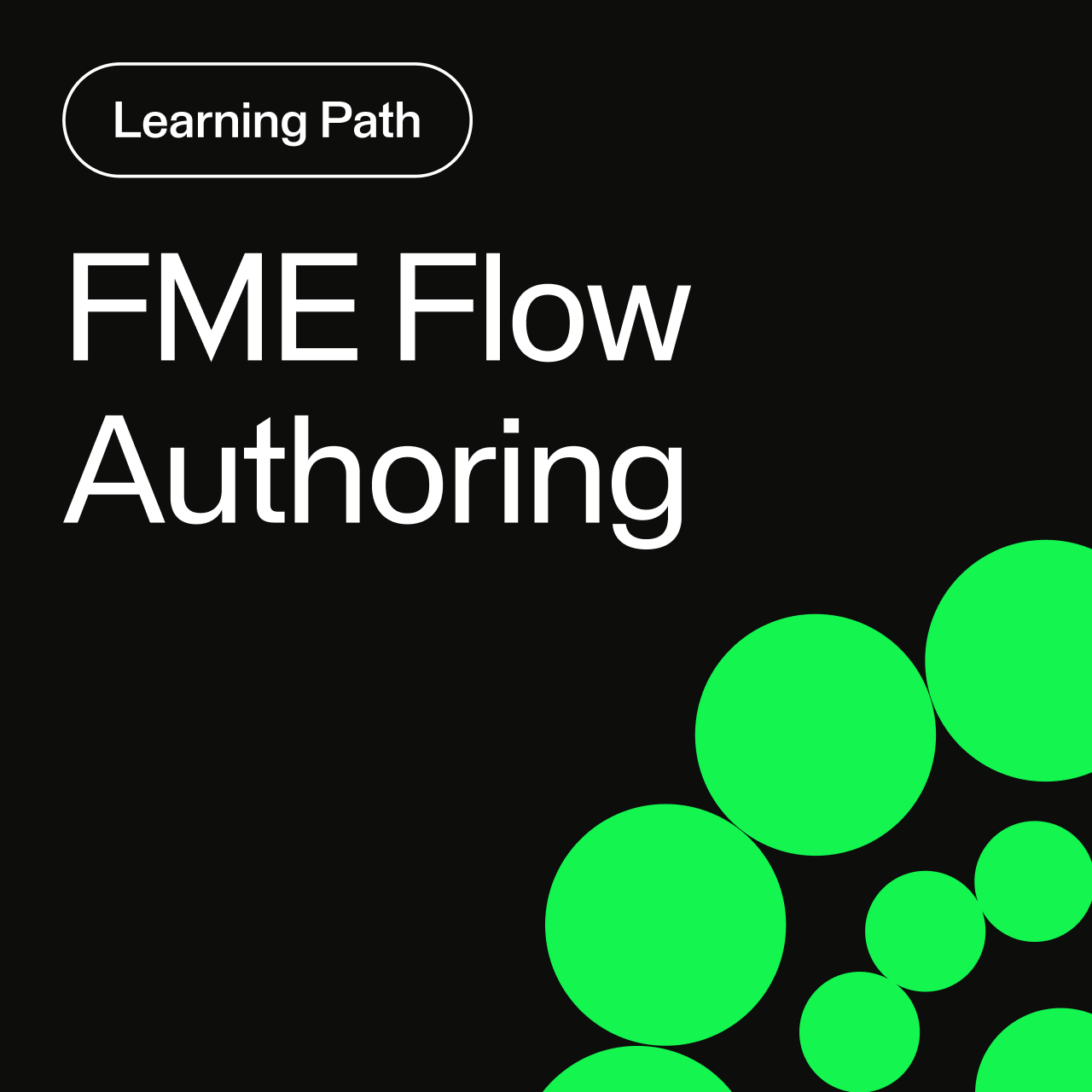
FME Flow Authoring
Author workspaces for use with FME Flow. Transform your workspaces into automations and self-serve apps that can run on a schedule or in response to triggers.
Learning Paths
Intermediate
On-Demand
FME Flow
2022.0

FME Flow Certified Professional
An FME Flow Certified Professional demonstrates an advanced level of expertise with FME Flow. View eligibility criteria and apply here.
$150
3 hr 11 min
Advanced
Courses
On-Demand
FME Flow
Certification
RR_PROCTORED
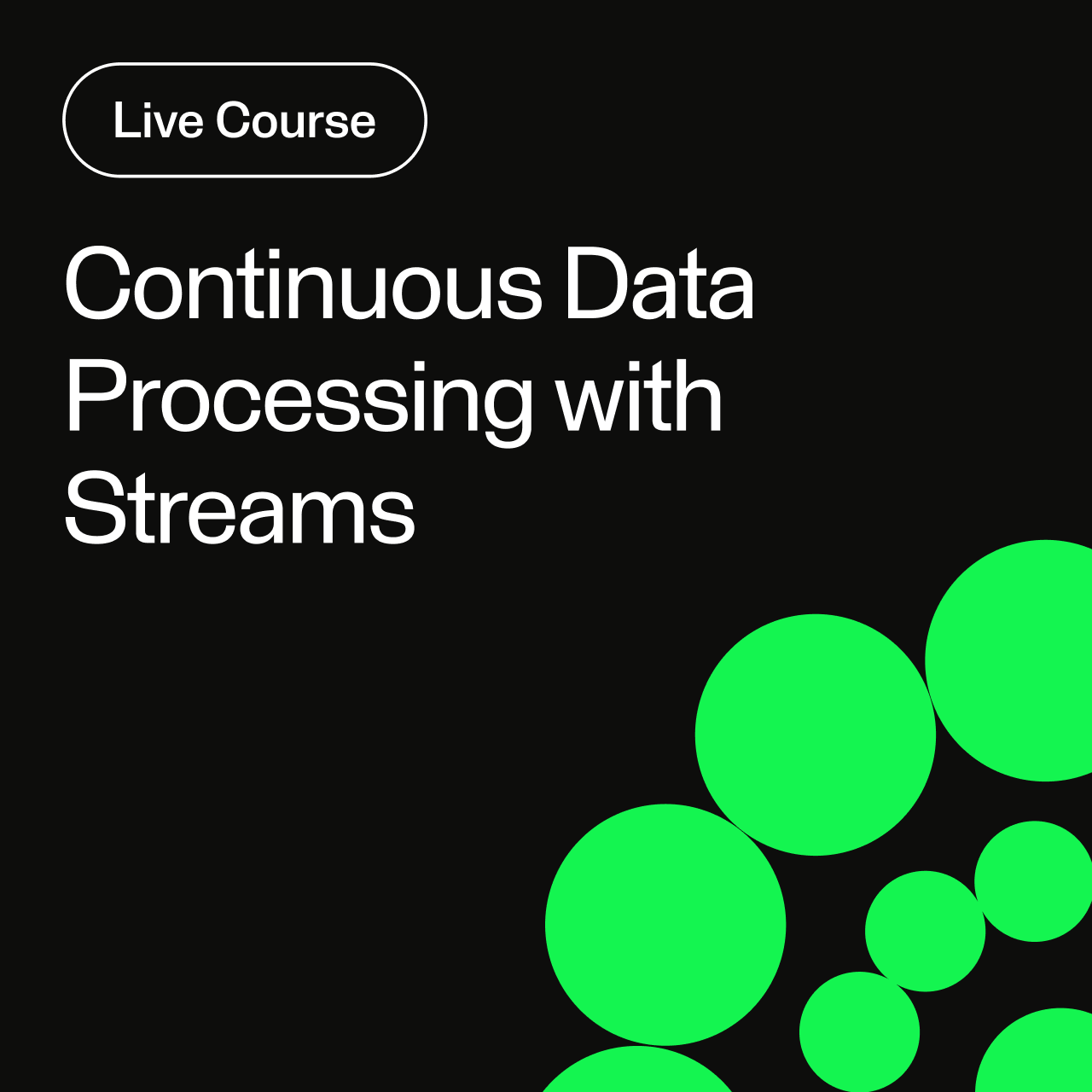
Continuous Data Processing with Streams - Live Online Course
Learn how to process continuous data with FME Flow Streams.
95 min
Intermediate
Live Training
Courses
FME Flow
2025.2

FME Accelerator
The one workshop that helps you maximize the full potential of your data in 90 minutes. Wave goodbye to data silos today with FME!
1 hr 30 min
Beginner
Live Training
Courses
FME Flow
FME Form
2023.0

Welcome to the FME Academy
Learn how the FME Academy can let you integrate data, earn badges, and advance your career.
0 hr 20 min
Beginner
Courses
On-Demand
2023.0

Integrate Data with the FME Platform 2022.0
A four-hour introduction to the entire FME platform. Gain value from data by connecting applications, transforming data, and automating common workflows.
4 Courses
Beginner
Learning Paths
On-Demand
FME Flow
FME Form
2022.0

FME Desktop Advanced 2022.1
An archived recording of our training course FME Desktop Advanced, covering topics like list attributes, custom transformers, and performance.
9 hr 44 min
Learning Paths
Intermediate
Advanced
FME Form
2022.1

Integrate Data with the FME Platform 2023.0
A four-hour introduction to the entire FME platform. Gain value from data by connecting applications, transforming data, and automating common workflows.
4 Courses
Beginner
Learning Paths
On-Demand
FME Form
2023.0

Integrate Data with the FME Platform 2024.0
A four-hour introduction to the entire FME platform. Gain value from data by connecting applications, transforming data, and automating common workflows.
5 Courses
Beginner
Learning Paths
On-Demand
FME Flow
FME Form
2023.0

FME Form Advanced 2023.2
Manipulate attributes using advanced methods, improve data quality, and create reusable workflows with FME Form.
16 Courses
Learning Paths
Advanced
On-Demand
FME Form
2023.2

FME Form Basic 2023.1
An in-depth introduction to authoring data integration workflows with FME Form.
11 Courses
Beginner
Learning Paths
On-Demand
FME Form
2023.1

FME Form Basic 2024.0
An in-depth introduction to authoring data integration workflows with FME Form.
11 Courses
Beginner
Learning Paths
On-Demand
FME Form
2024.0

Integrate Spatial Data 2022.0
Unlock the power of your spatial data with FME. Learn the basics of spatial data and conducting basic spatial analysis.
3 Courses
Beginner
Learning Paths
On-Demand
FME Form
2022.0

Connect Data to Cityworks 2023.0
A 2023 recording of our training course Connect Data to Cityworks. Learn to integrate Cityworks with external applications and datasets using FME.
4 hr 45 min
Intermediate
Courses
On-Demand
FME Flow
FME Form
2023.0

FME Form Advanced 2022.1
Manipulate attributes using advanced methods, improve data quality, and create reusable workflows with FME Form.
15 Courses
Learning Paths
Advanced
On-Demand
FME Form
2022.1

FME & Esri Utility Network Migration 2019.1
Learn how to use the essential components and capabilities of FME, focusing on Esri Utility Network Migration.
Learning Paths
Intermediate
Courses
On-Demand
FME Form
2019.1

Automate Data Integration Tasks 2022.0
Build FME Flow Automations to keep your data current and your applications synced with instant, event-triggered workflows.
0 Courses
Learning Paths
Advanced
On-Demand
FME Flow
2022.0

Partner Live Training Courses
Browse and register for upcoming FME training courses offered by Safe Software partners.
auto-registration
Partner Live Training Redirect

Connect Your Data (Even Geospatial!) to Snowflake
An archived recording of our training course Connect Your Data (Even Geospatial!) to Snowflake.
3 hr 29 min
Learning Paths
Advanced
On-Demand
FME Form
2020.2

FME Desktop Basic 2022.1
An archived recording of our training course FME Desktop Basic.
8 hr 15 min
Beginner
Learning Paths
On-Demand
FME Form
2022.1

Connect Data to Cityworks 2020.1
An archived recording of our training course Connect Data to Cityworks.
1 hr 20 min
Learning Paths
Intermediate
On-Demand
FME Flow
FME Form
2020.1

FME Form Basic 2022.0
An in-depth introduction to authoring data integration workflows with FME Form.
10 Courses
Beginner
Learning Paths
On-Demand
FME Form
2022.0

Publish Workflows to the Web 2022.0
Save time and create enterprise-level data integration workflows with FME Flow.
2 Courses
Beginner
Learning Paths
On-Demand
FME Flow
FME Form
2022.0

Create Data Integration Apps 2022.0
Build self-serve workflows using FME Flow, including Flow Apps, which users can run without logging in.
4 Courses
Learning Paths
Intermediate
On-Demand
FME Flow
2022.0

FME Flow Authoring - Live Online Course
Author workspaces for use with FME Flow. Transform your workspaces into automations and apps that can run on a schedule or in response to triggers.
20 hr 15 min
Beginner
Learning Paths
Intermediate
Live Training
FME Flow
2022.0
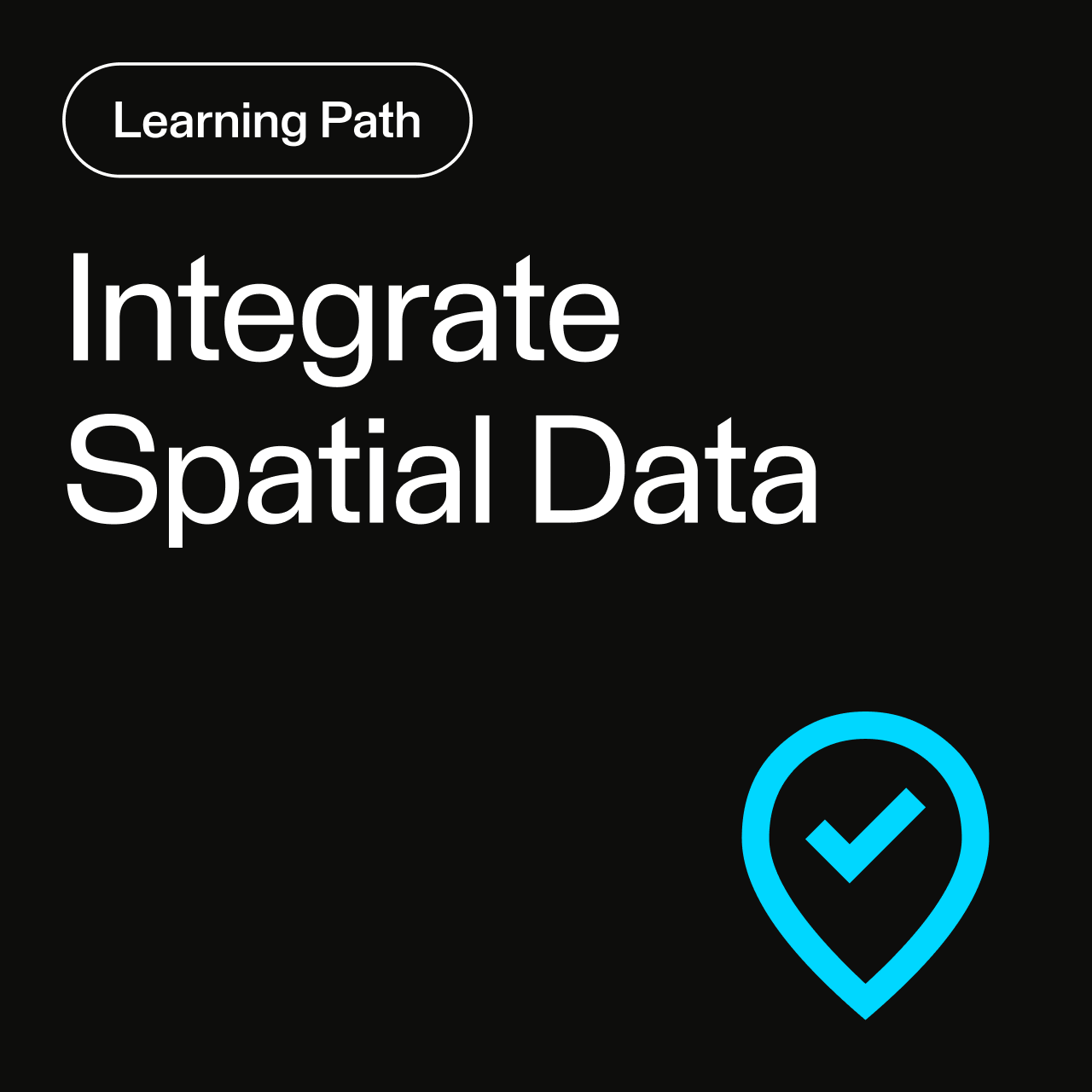
Integrate Spatial Data
Unlock the power of your spatial data with FME. Learn the basics of spatial data and conducting basic spatial analysis.
5 Courses
Beginner
Learning Paths
On-Demand
FME Form
2024.2

FME Form Basic
An in-depth introduction to authoring data integration workflows with FME Form.
12 Courses
Beginner
Learning Paths
On-Demand
FME Form
2025.0

FME Form Advanced - Live Online Course
Manipulate attributes using advanced methods, improve data quality, and create reusable workflows with FME Form.
20 hr 15 min
Learning Paths
Intermediate
Live Training
Advanced
FME Form
2022.0
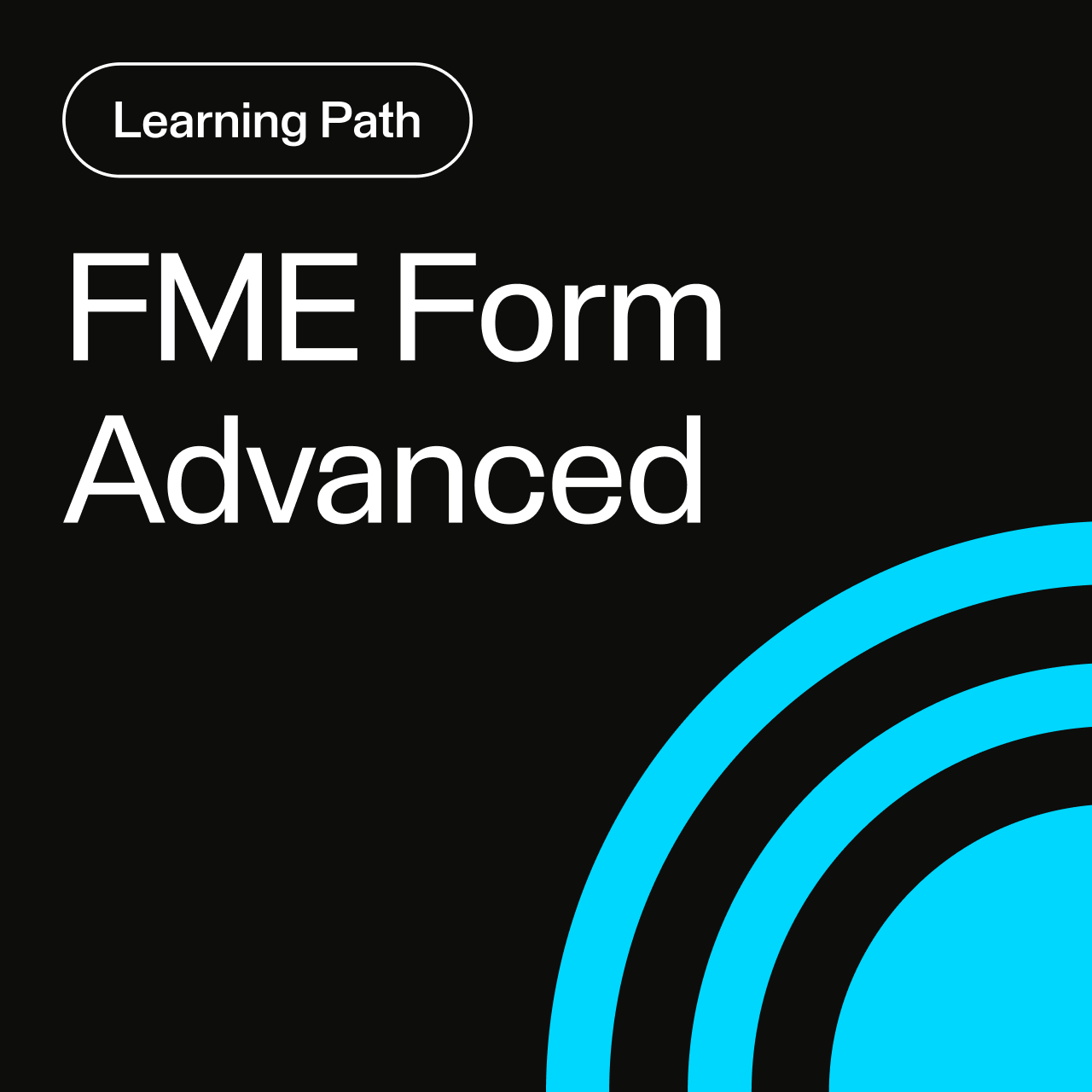
FME Form Advanced 2025.1
Manipulate attributes using advanced methods, improve data quality, and create reusable workflows with FME Form.
16 Courses
Learning Paths
Advanced
On-Demand
FME Form
2025.1

Integrate Data with the FME Platform
A four-hour introduction to the entire FME platform. Gain value from data by connecting applications, transforming data, and automating common workflows.
5 Courses
Beginner
Learning Paths
On-Demand
FME Flow
FME Form
2025.0

Getting Started with AI in FME
Learn to connect FME to AI services and use prompt engineering, file searching, classification, and reasoning.
0 hr 5 min
Intermediate
Live Training
Courses
On-Demand
FME Flow
FME Form
2025.1
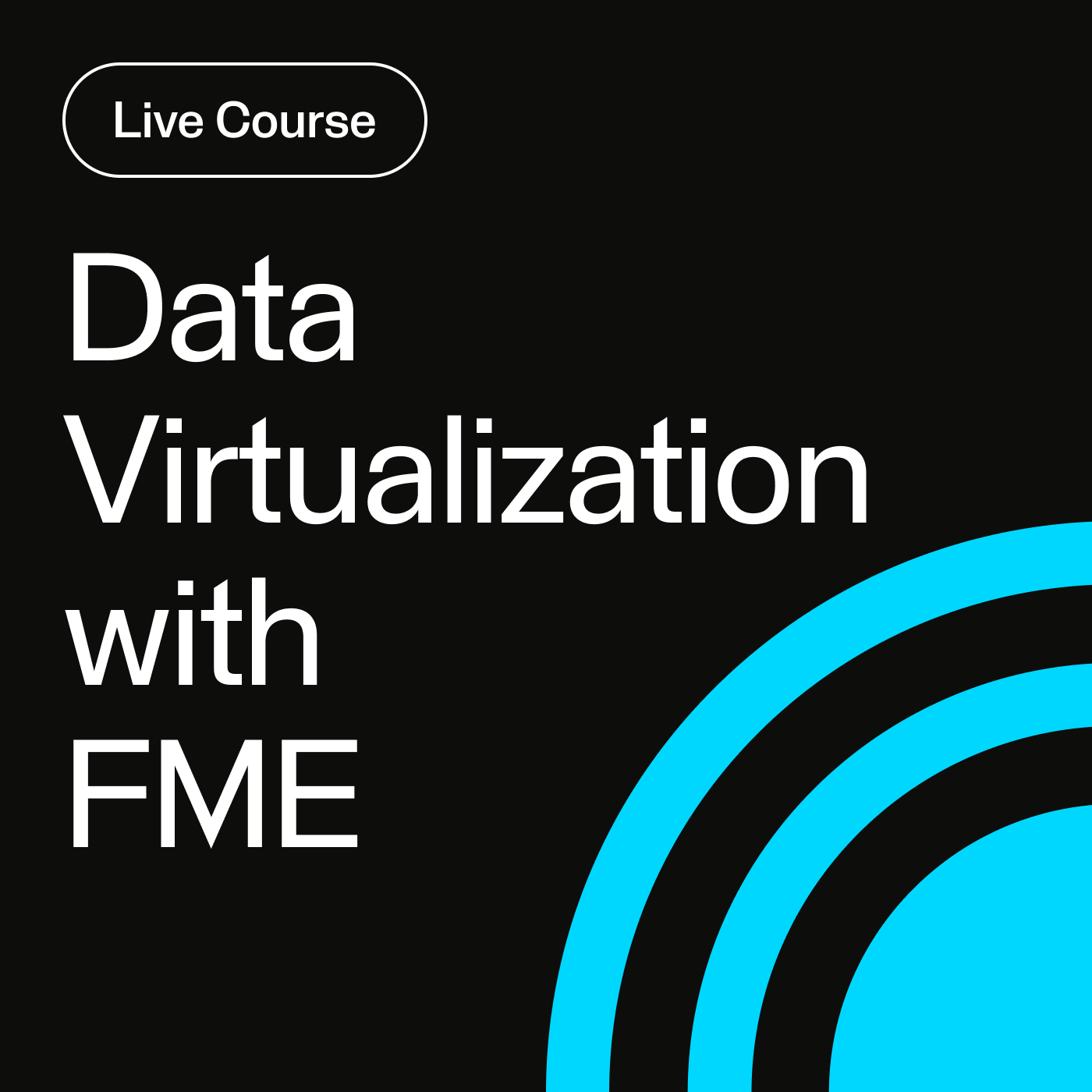
Data Virtualization with FME - Live Online Course
Bring the full power of FME directly into your applications, without having to build additional infrastructure or writing custom code.
Live Training
Advanced
FME Flow
FME Form

Deploy Workflows with FME Flow
Learn the basics of deploying your data integration workflows with FME Flow.
5 Courses
Beginner
Learning Paths
On-Demand
FME Flow
2025.0
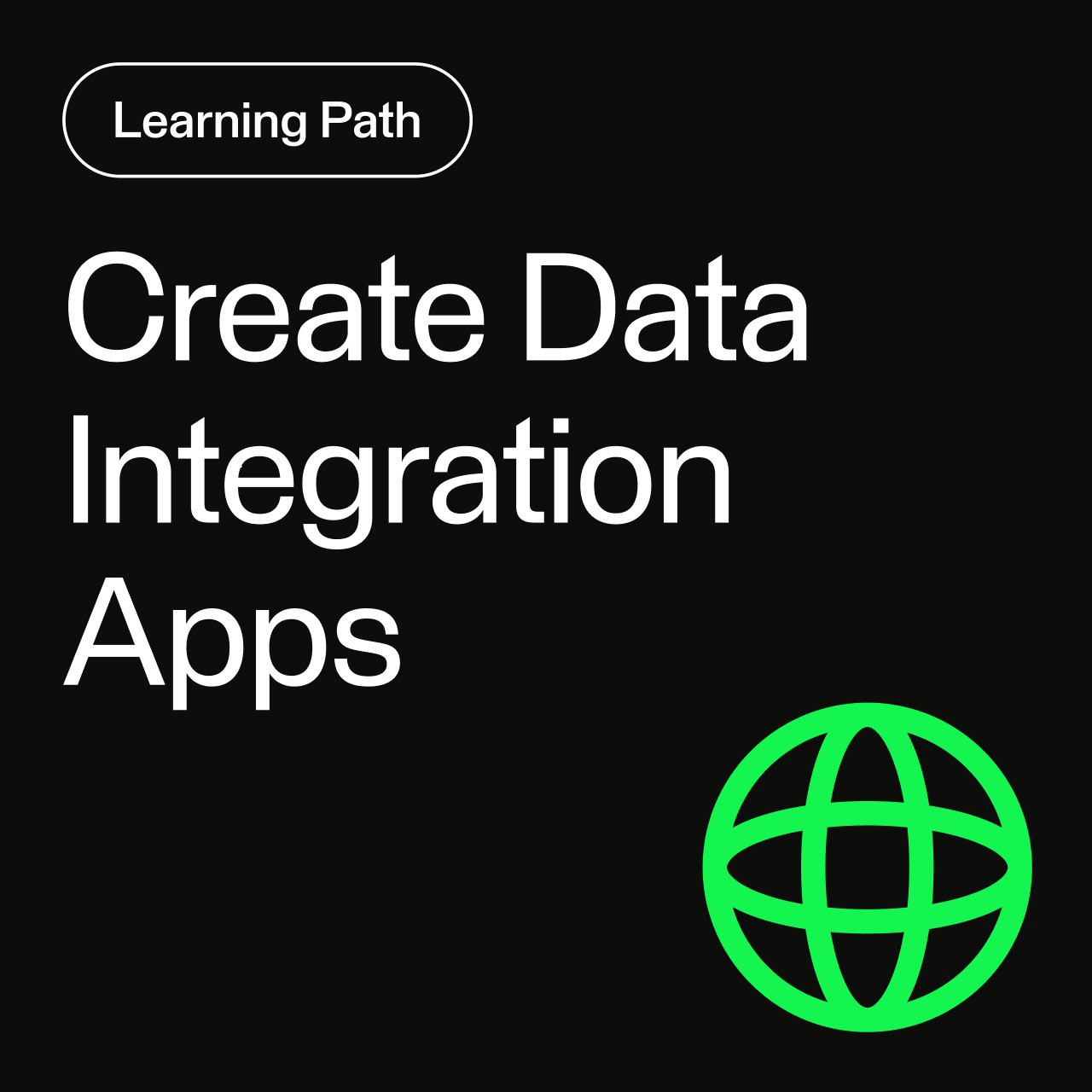
Create Data Integration Apps
Build self-serve workflows using FME Flow, including Flow Apps, which users can run without logging in.
2 Courses

FME Certified Professional
An FME Certified Professional demonstrates expertise with the FME platform, with a focus on FME Form. View eligibility criteria and apply here.
$150
3 hr 8 min
Advanced
Courses
FME Flow
FME Form
Certification
RR_PROCTORED

Esri Geodatabases and FME Form - Live Online Course
Learn how to create Esri Geodatabase and ArcGIS Online translations and transformations, and work with data structures specifically for use in ArcGIS.
04:15:00
Beginner
Live Training
Courses
Safe Software
2025.0

Integrate Data with the FME Platform - Live Online Course
Gain value from data by connecting applications, transforming data, and automating common workflows.
08:15:00
Beginner
Learning Paths
Live Training
FME Flow
FME Form
2022.0

FME Flow Authoring
Earn your certificate for completing the FME Flow Authoring learning path.
auto-registration
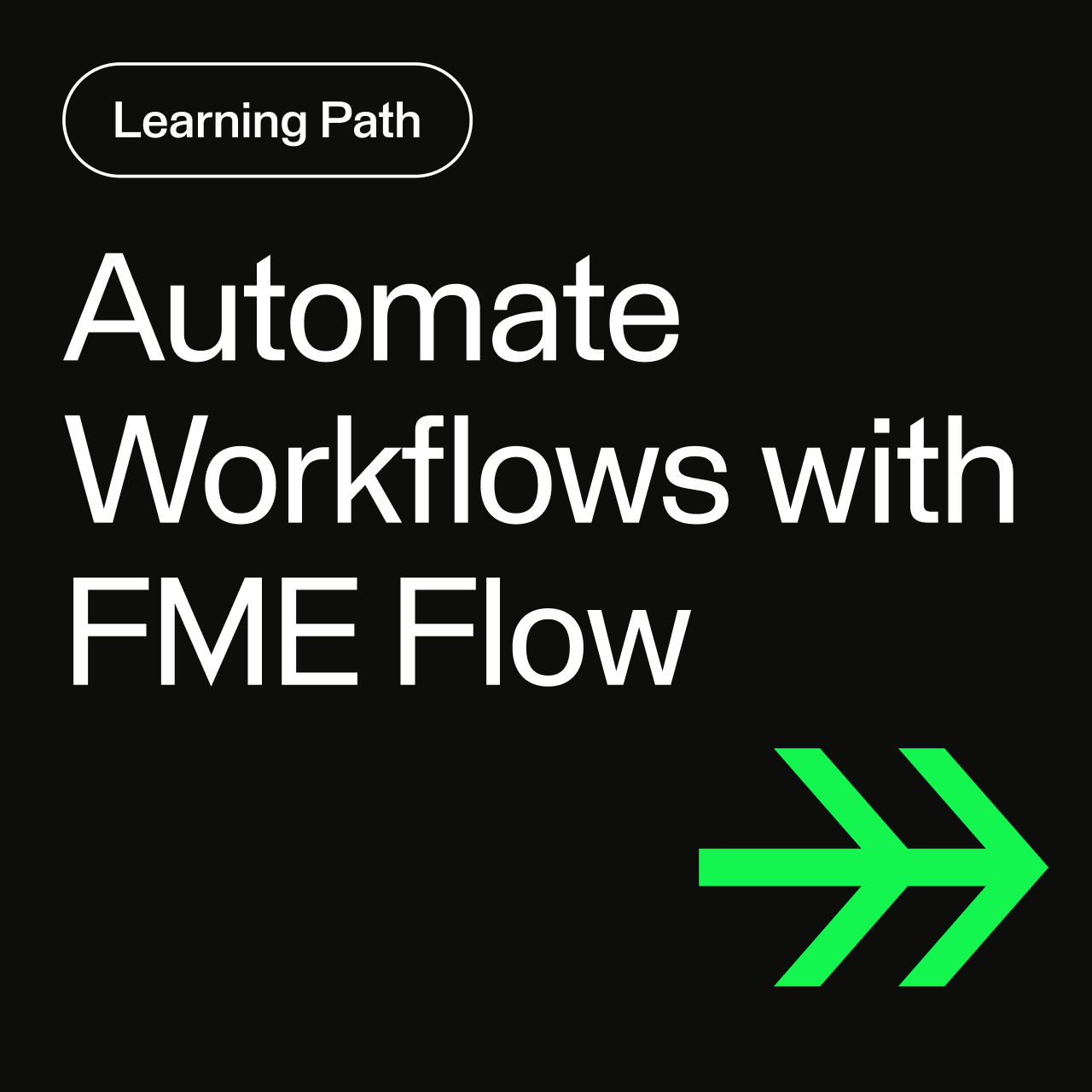
Automate Workflows with FME Flow
Save time by using FME to turn manual tasks into repeatable or event-based workflows.
4 Courses
Learning Paths
Intermediate
On-Demand
FME Flow
2025.1

FME Flow Authoring 2022.0
Author workspaces for use with FME Flow. Transform your workspaces into automations and apps that can run on a schedule or in response to triggers.
9 Courses
Learning Paths
Intermediate
On-Demand
FME Flow
2022.0

FME Flow Authoring 2023.0
Author workspaces for use with FME Flow. Transform your workspaces into automations and apps that can run on a schedule or in response to triggers.
10 Courses
Learning Paths
Intermediate
On-Demand
FME Flow
2023.0

Advanced Reading and Writing
Create workspaces that can read data anywhere and adapt to schema drift.
6 Courses
Learning Paths
Advanced
On-Demand
FME Form
2022.1

Build Advanced Workflows
Manipulate attributes using advanced methods, improve data quality, and create reusable workflows with FME Form.
5 Courses
Learning Paths
Advanced
On-Demand
FME Form
2022.1

Transform Attributes
Learn how to create, transform, and use attributes in your data integration workflows.
4 Courses
Beginner
Learning Paths
On-Demand
FME Form
2023.0

FME Form Basic - Live Online Course
An in-depth introduction to authoring data integration workflows with FME Form.
20 hr 15 min
Beginner
Learning Paths
Live Training
FME Form
2022.0

Automate Workflows 2022.0
Save time by using FME to turn manual tasks into repeatable or event-based workflows.
0 hr 55 min
Beginner
Courses
On-Demand
FME Flow
2022.0

Why Data Integration? 2022.0
Understand the value of spatial data integration and how to achieve it with FME.
0 hr 30 min
Beginner
Courses
On-Demand
FME Flow
FME Form
2022.0

Connect To Data 2022.0
Learn to eliminate data silos and move information between 450+ applications using FME's visual interface.
0 hr 45 min
Beginner
Courses
On-Demand
FME Form
2022.0

Transform Data 2022.0
Learn how to ensure data quality throughout the integration lifecycle with FME transformers.
1 hr 0 min
Beginner
Courses
On-Demand
FME Form
2022.0
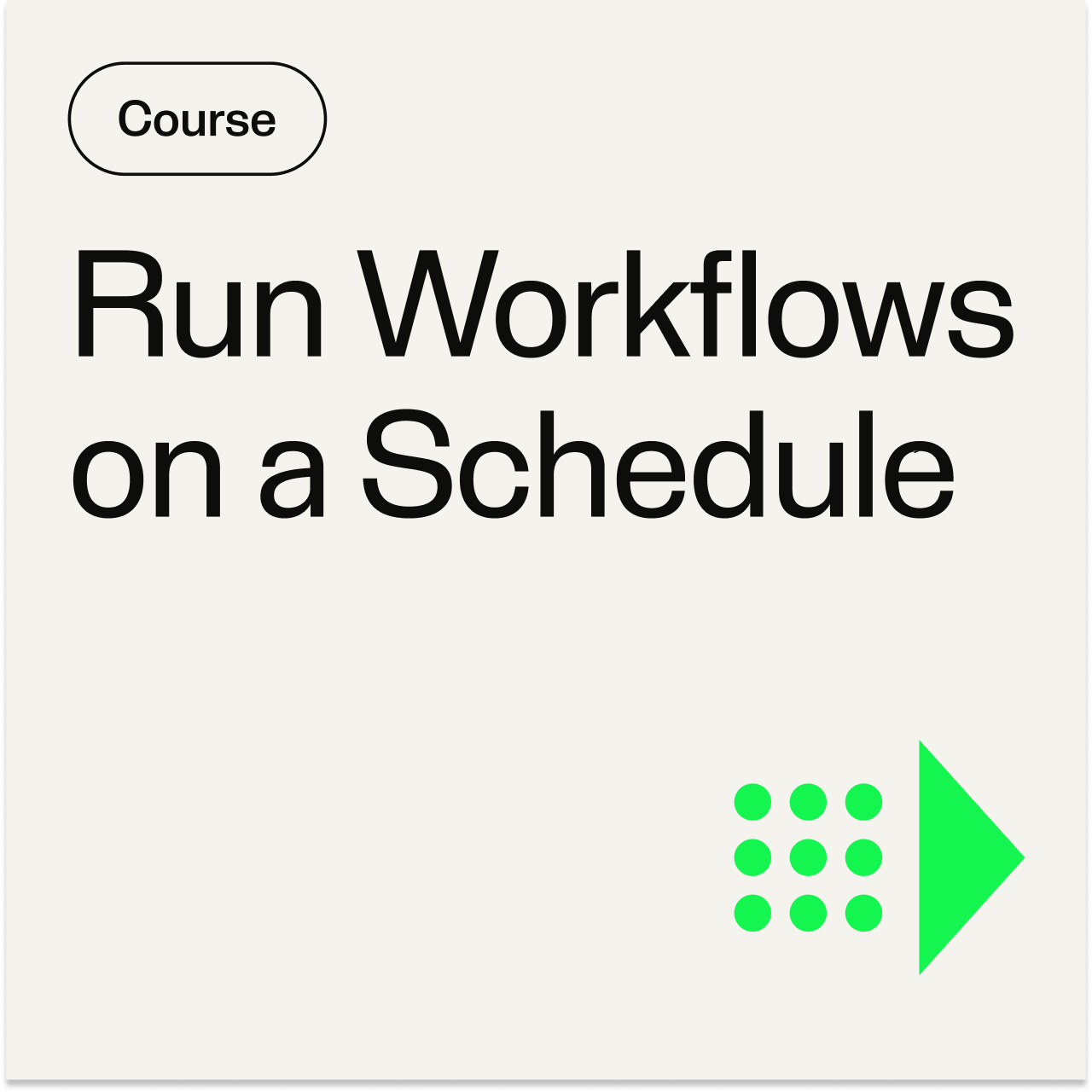
Run Workflows on a Schedule 2025.1
Save time by building Automations to run workspaces at scheduled intervals using FME Flow.
0 hr 20 min
Intermediate
Courses
On-Demand
FME Flow
2025.1

Respond to Real-time Events 2025.1
Run workspaces in response to changes in a file directory or incoming email.
0 hr 50 min
Intermediate
Courses
On-Demand
FME Flow
2025.1
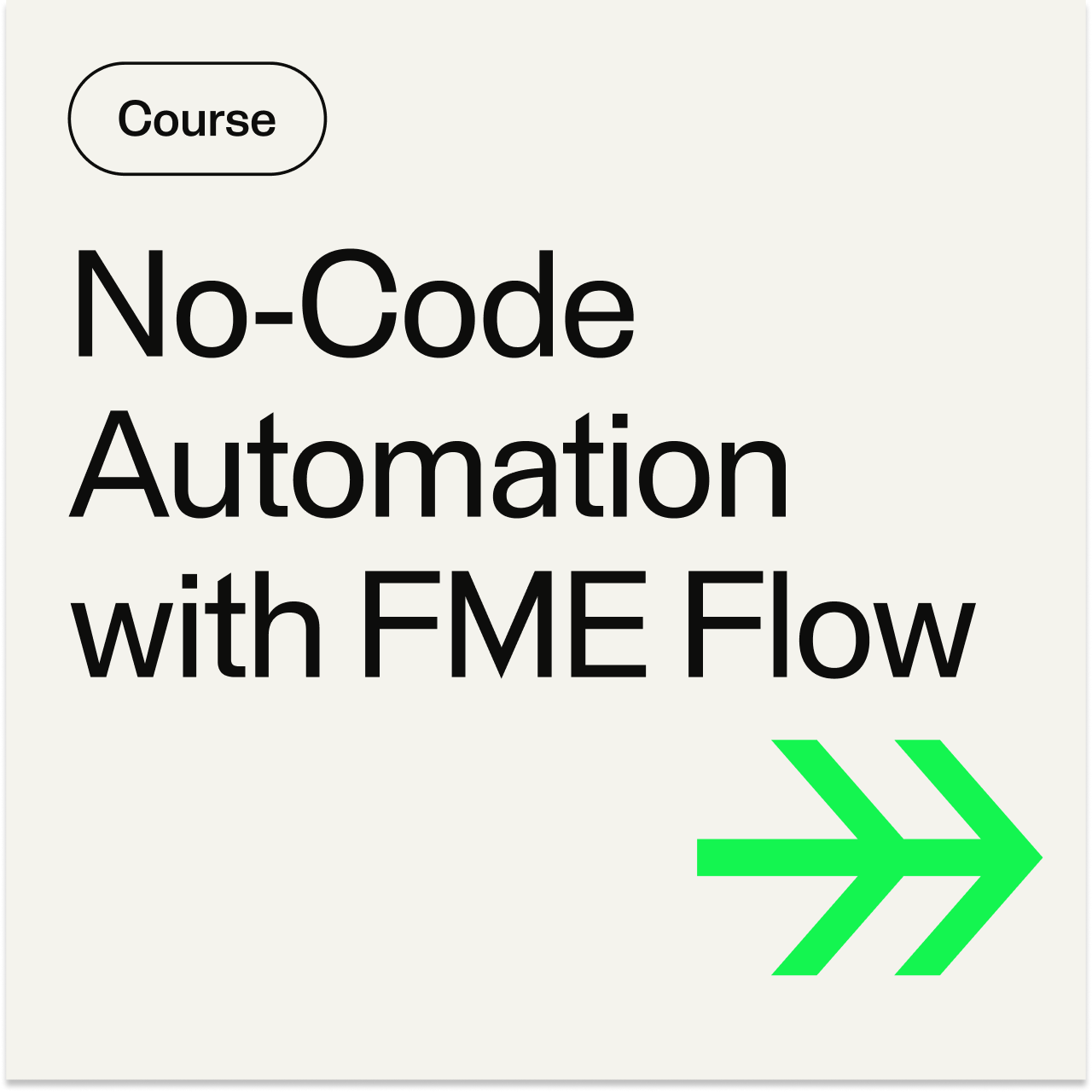
No-Code Automation with FME Flow 2025.1
Learn the basics of automating FME workflows to run on a schedule or in response to a trigger.
0 hr 25 min
Beginner
Courses
On-Demand
FME Flow
2025.1
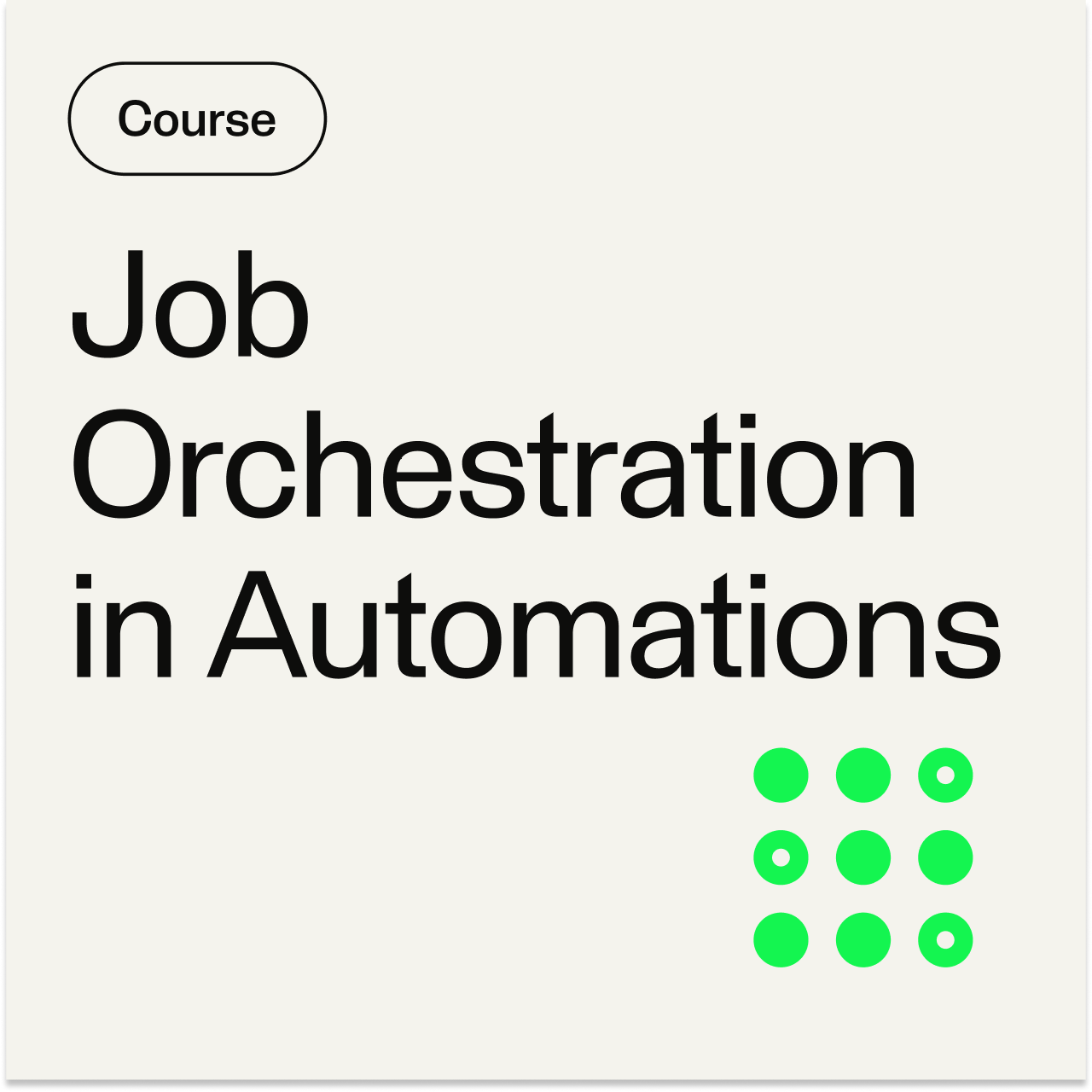
Job Orchestration in Automations 2025.1
Run jobs in sequence or in parallel, use the Split-Merge Block, and use the Automations Writer to pass information between nodes.
0 hr 55 min
Advanced
Courses
On-Demand
FME Flow
2025.1

Automate Workflows 2023.0
Save time by using FME to turn manual tasks into repeatable or event-based workflows.
0 hr 55 min
Beginner
Courses
On-Demand
FME Flow
2023.0

Transform Data 2023.0
Learn how to ensure data quality throughout the integration lifecycle with FME transformers.
1 hr 0 min
Beginner
Courses
On-Demand
FME Form
2023.0

Connect To Data 2023.0
Learn to eliminate data silos and move information between 450+ applications using FME's visual interface.
1 hr 10 min
Beginner
Courses
On-Demand
FME Form
2023.0

Why Data Integration? 2023.0
Understand the value of spatial data integration and how to achieve it with FME.
0 hr 30 min
Beginner
Courses
On-Demand
FME Flow
FME Form
2023.0

Transform Data 2025.0
Learn how to ensure data quality throughout the integration lifecycle with FME transformers.
1 hr 10 min
Beginner
Courses
On-Demand
FME Form
2025.0

Connect To Data 2025.0
Learn to eliminate data silos and move information between 500+ applications using FME's visual interface.
1 hr 10 min
Beginner
Courses
On-Demand
FME Form
2025.0

Why Data Integration? 2025.0
Understand the value of spatial data integration and how to achieve it with FME.
0 hr 28 min
Beginner
Courses
On-Demand
FME Form
2025.0

Automate Workflows 2025.0
Save time by using FME to turn manual tasks into repeatable or event-based workflows.
0 hr 56 min
Beginner
Courses
On-Demand
FME Flow
2025.0

Integrate Data with the FME Platform
Earn your certificate for completing the Integrate Data with the FME Platform learning path.
auto-registration
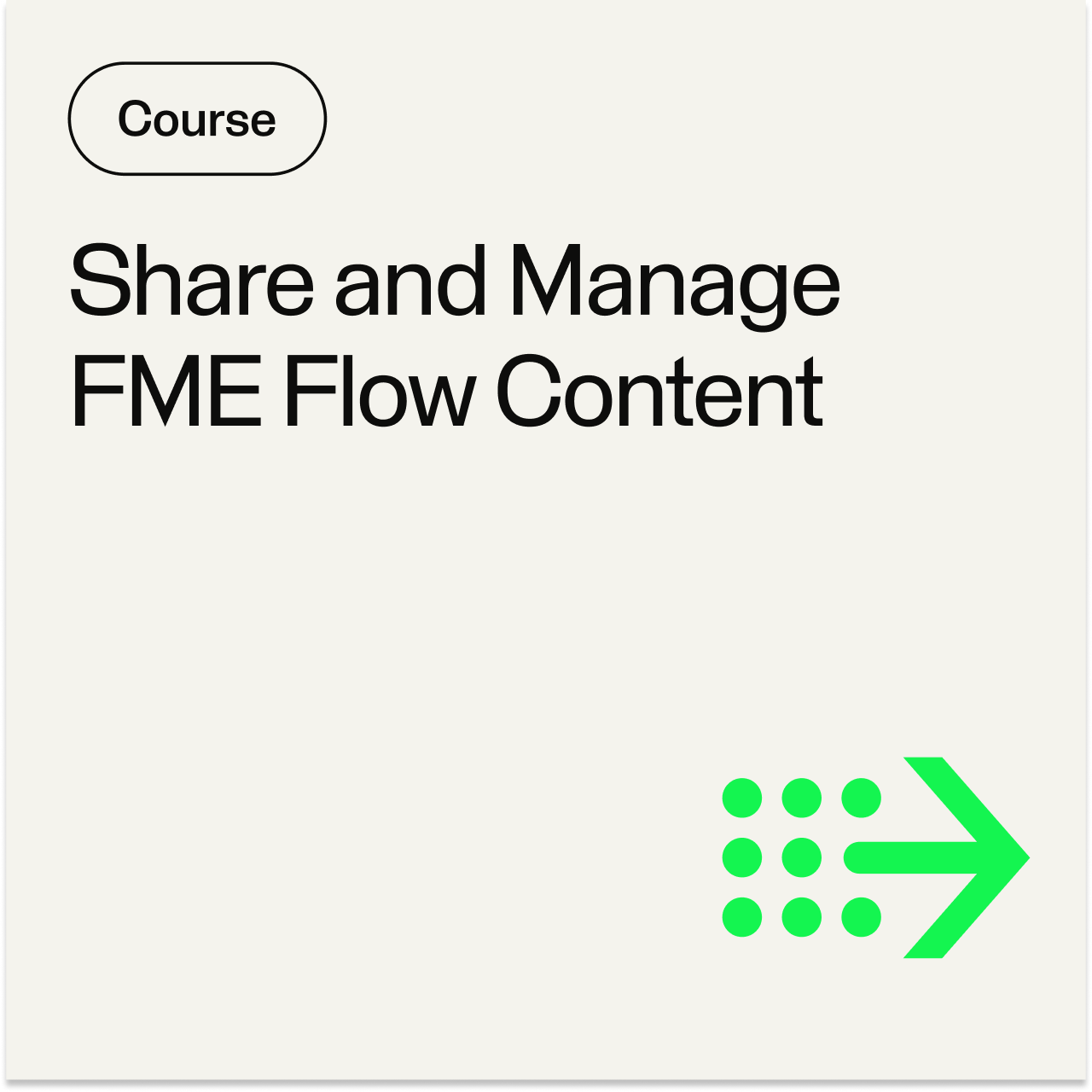
Share and Manage FME Flow Content 2025.0
Share and manage FME Flow items, workspaces, and data, including using FME Flow projects.
0 hr 40 min
Intermediate
Courses
On-Demand
FME Flow
2025.0

What is FME Flow? 2025.0
Get to know FME Flow, where you deploy your workflows and bring your data to life.
0 hr 30 min
Beginner
Courses
On-Demand
FME Flow
2025.0

Deploy Workspaces on FME Flow 2025.0
Move your workflows from FME Form to FME Flow. Publish, run, and inspect workflows on FME Flow.
0 hr 50 min
Beginner
Courses
On-Demand
FME Flow
2025.0

Build Self-Serve Workflows with Parameters 2025.0
Give end-users control over how workspaces run on FME Flow, creating flexible and adaptable data integration workflows.
0 hr 45 min
Intermediate
Courses
On-Demand
FME Flow
2025.0

Manage FME Flow Data and Connections 2025.0
Add, securely connect, and share database and web service credentials using FME Flow.
1 hr 20 min
Intermediate
Courses
On-Demand
FME Flow
2025.0

Create and Modify Attributes 2023.1
Create, delete, rename, and calculate values for attributes to extract value from data.
0 hr 55 min
Beginner
Courses
On-Demand
FME Form
2023.1

Debug Workspaces 2023.1
Learn how to create and debug documented workspaces that are easy to maintain and take advantage of FME’s performance.
0 hr 55 min
Intermediate
Courses
On-Demand
FME Form
2023.1

Design Workspaces for Advanced Reading and Writing 2023.1
Use prototyping, multiple readers and writers, parameters, and partial runs to craft well-designed workspaces.
1 hr 55 min
Beginner
Courses
On-Demand
FME Form
2023.1

Filter Data 2023.1
Filter data by attribute values to stream data to different destinations or transform it selectively.
0 hr 35 min
Beginner
Courses
On-Demand
FME Form
2023.1

Use Conditional Values 2023.1
Efficiently set values based on conditional tests using Conditional Values.
0 hr 20 min
Beginner
Courses
On-Demand
FME Form
2023.1

Work with Multiple Data Models Using Lists 2023.1
Unlock the power of FME for more complex workflows by working with list attributes.
0 hr 40 min
Intermediate
Courses
On-Demand
FME Form
2023.1

Document Your Workspace 2023.1
Follow best practices for workspace design, using bookmarks and annotation to organize your work.
1 hr 10 min
Beginner
Courses
On-Demand
FME Form
2023.1

Join Tables 2023.1
Join datasets together based on a shared key using FME transformers like the FeatureJoiner or FeatureMerger.
0 hr 25 min
Beginner
Intermediate
Courses
On-Demand
FME Form
2023.1

Manage FME Flow Data and Connections 2022.0
Add, securely connect, and share database and web service credentials using FME Flow.
1 hr 0 min
Intermediate
Courses
On-Demand
FME Flow
2022.0

Build Basic Self-Serve Workflows 2022.0
Give end-users control over how workspaces run on FME Flow, creating flexible and adaptable data integration workflows.
0 hr 40 min
Intermediate
Courses
On-Demand
FME Flow
2022.0

Create No-Code Web Apps 2022.0
Create web apps to share your data integration workflows without needing to code.
0 hr 45 min
Advanced
Courses
On-Demand
FME Flow
2022.0

Build Versatile Self-Serve Workflows 2022.0
Give end-users control over how workspaces run on FME Flow, creating flexible and adaptable data integration workflows.
1 hr 0 min
Intermediate
Courses
On-Demand
FME Flow
2022.0

Learn Spatial Data Concepts 2024.2
Learn how locations on the earth are represented digitally and the basics of working with spatial data.
0 hr 50 min
Beginner
Courses
On-Demand
FME Form
2024.2

Work with Geometry 2024.2
Learn FME's geometry model, types, and transformers for handling spatial data, including aggregates, multis, measures, and fixing invalid geometries.
0 hr 45 min
Beginner
Courses
FME Form

Turn Coordinates Into Geometry 2024.2
Transform coordinates into points, lines, and polygons with FME readers and transformers.
0 hr 35 min
Beginner
Courses
On-Demand
FME Form
2024.2

Analyze Spatial Data 2024.2
Conduct basic spatial analysis by comparing the location of features or filtering data based on location.
0 hr 40 min
Beginner
Courses
On-Demand
FME Form
2024.2

Integrate Spatial Data
Earn your certificate for completing the Integrate Spatial Data learning path.
auto-registration

Build Basic Automations 2023.0
Learn the basics of FME Flow Automations, which run workspaces on a schedule or in response to a trigger.
0 hr 30 min
Intermediate
Courses
On-Demand
FME Flow
2023.0

Manage FME Flow Data and Connections 2023.0
Add, securely connect, and share database and web service credentials using FME Flow.
1 hr 0 min
Intermediate
Courses
On-Demand
FME Flow
2023.0

Build Versatile Automations 2023.0
Run workspaces in response to changes in a file directory or incoming email.
1 hr 0 min
Intermediate
Courses
On-Demand
FME Flow
2023.0

Publish Workflows to the Web 2023.0
Move your workflows from FME Form to FME Flow. Publish, run, and share workflows within your organization.
0 hr 50 min
Beginner
Live Training
Courses
On-Demand
FME Flow
2023.0

Build Basic Self-Serve Workflows 2023.0
Give end-users control over how workspaces run on FME Flow, creating flexible and adaptable data integration workflows.
0 hr 40 min
Intermediate
Courses
On-Demand
2023.0

Build Versatile Self-Serve Workflows 2023.0
Give end-users control over how workspaces run on FME Flow, creating flexible and adaptable data integration workflows.
1 hr 0 min
Intermediate
Courses
On-Demand
FME Flow
2023.0

What is FME Flow? 2023.0
Get to know FME Flow, where you deploy your workflows and bring your data to life.
0 hr 25 min
Beginner
Courses
On-Demand
FME Flow
2023.0

Create No-Code Web Apps 2023.0
Create web apps to share your data integration workflows without needing to code.
0 hr 35 min
Intermediate
Courses
On-Demand
FME Flow
2023.0

Connect Automations with Job Orchestration 2023.0
Coordinate multiple jobs in an Automation and pass details from one workspace to another.
1 hr 0 min
Intermediate
Courses
On-Demand
FME Flow
2023.0

Leverage Ordered Data 2021.1
Extract insights from ordered data by creating attributes with values created from adjacent features.
0 hr 25 min
Advanced
Courses
On-Demand
FME Form
2021.1

Read From and Write To Multiple Locations 2021.1
Quickly and easily create many layers or files in your output using multiple readers/writers or fanouts.
0 hr 25 min
Advanced
Courses
On-Demand
FME Form
2021.1

Design Modular and Maintainable Workspaces with Custom Transformers 2022.0
Adopt enterprise data integration best practices by creating reusable and encapsulated workflows.
0 hr 50 min
Advanced
Courses
On-Demand
FME Form
2022.0

Improve Data Quality by Handling Null and Missing Values 2021.1
Reduce the likelihood of mistakes and errors in your data by identifying and addressing missing, empty, and null values.
0 hr 25 min
Advanced
Courses
On-Demand
FME Form
2021.1

Build a Library of Custom Transformers 2022.0
Choose between linked and embedded transformers and share versioned transformers with your colleagues.
0 hr 30 min
Advanced
Courses
On-Demand
FME Form
2022.0

Learn Spatial Data Concepts 2022.0
Learn how locations on the earth are represented digitally and the basics of working with spatial data.
0 hr 50 min
Beginner
Courses
On-Demand
FME Form
2022.0

Turn Coordinates Into Geometry 2022.0
Transform coordinates into points, lines, and polygons with FME readers and transformers.
0 hr 35 min
Beginner
Courses
On-Demand
FME Form
2022.0

Analyze Spatial Data 2022.0
Conduct basic spatial analysis by comparing the location of features or filtering data based on location.
0 hr 40 min
Beginner
Courses
FME Form
2022.0

Why Data Integration? 2024.0
Understand the value of spatial data integration and how to achieve it with FME.
0 hr 30 min
Beginner
Courses
On-Demand
FME Flow
FME Form
2024.0

Connect To Data 2024.0
Learn to eliminate data silos and move information between 500+ applications using FME's visual interface.
1 hr 10 min
Beginner
Courses
On-Demand
FME Form
2024.0

Transform Data 2024.0
Learn how to ensure data quality throughout the integration lifecycle with FME transformers.
1 hr 10 min
Beginner
Courses
On-Demand
FME Form
2024.0

Automate Workflows 2024.0
Save time by using FME to turn manual tasks into repeatable or event-based workflows.
0 hr 56 min
Beginner
Courses
On-Demand
FME Flow
2024.0

Work with Multiple Data Models Using Lists 2025.0
Unlock the power of FME for more complex workflows by working with list attributes.
0 hr 40 min
Beginner
Courses
On-Demand
FME Form
2025.0

Create and Modify Attributes 2025.0
Create, delete, rename, and calculate values for attributes to extract value from data.
1 hr 5 min
Beginner
Courses
On-Demand
FME Form
2025.0

FME Form Basic
Earn your certificate for completing the FME Form Basic learning path.
auto-registration

Filter Data 2025.0
Filter data by attribute values to stream data to different destinations or transform it selectively.
0 hr 25 min
Beginner
Courses
On-Demand
FME Form
2025.0

Document Your Workspace 2025.0
Follow best practices for workspace design, using bookmarks and annotation to organize your work.
0 hr 50 min
Beginner
Courses
On-Demand
FME Form
2025.0

Design Workspaces for Advanced Reading and Writing 2025.0
Use prototyping, multiple readers and writers, parameters, and partial runs to craft well-designed workspaces.
0 hr 40 min
Intermediate
Courses
On-Demand
FME Form
2025.0

Join Tables 2025.0
Join datasets together based on a shared key using FME transformers like the FeatureJoiner or FeatureMerger.
0 hr 25 min
Beginner
Courses
On-Demand
FME Form
2025.0

Debug Workspaces 2025.0
Learn how to create and debug documented workspaces that are easy to maintain and take advantage of FME’s performance.
0 hr 36 min
Beginner
Courses
On-Demand
FME Form
2025.0

Use Conditional Values 2025.0
Efficiently set values based on conditional tests using Conditional Values.
0 hr 20 min
Beginner
Courses
On-Demand
FME Form
2025.0
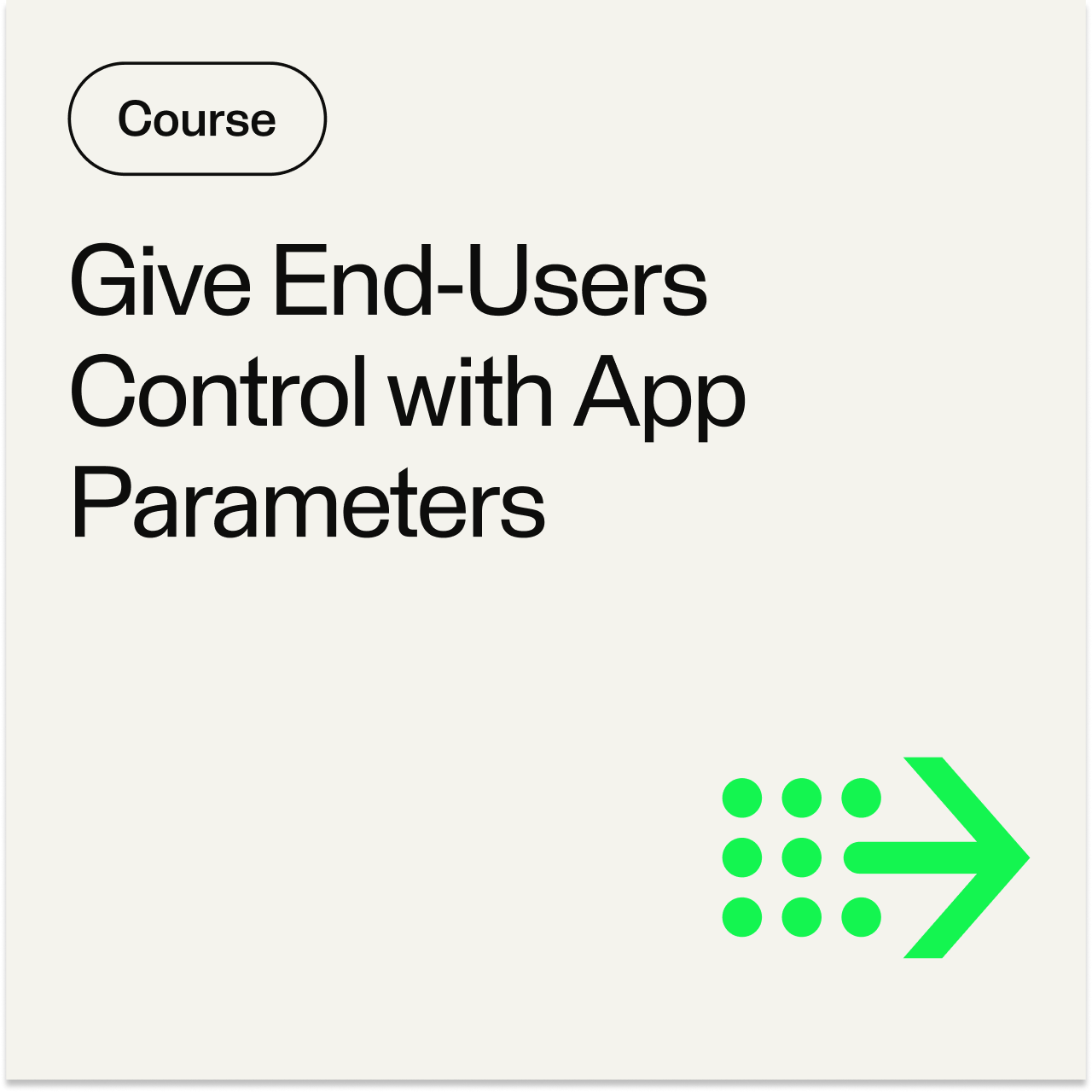
Give End-Users Control with App Parameters 2025.1
Give end-users control over App inputs through parameters
0 hr 50 min
Intermediate
Courses
On-Demand
FME Flow
2025.1

Create No-Code Web Apps 2025.1
Create web apps to share your data integration workflows without needing to code.
0 hr 55 min
Intermediate
Courses
On-Demand
FME Flow
2025.1

What is FME Flow? 2022.0
Get to know FME Flow, where you deploy your workflows and bring your data to life.
0 hr 25 min
Beginner
Courses
On-Demand
FME Flow
2022.0

Publish Workflows to the Web 2022.0
Move your workflows from FME Form to FME Flow. Publish, run, and share workflows within your organization.
0 hr 50 min
Beginner
Courses
On-Demand
FME Flow
FME Form
2022.0

Build a Library of Custom Transformers 2023.2
Choose between linked and embedded transformers and share versioned transformers with your colleagues.
0 hr 30 min
Advanced
Courses
On-Demand
FME Form
2023.2

Compare Workspaces 2023.0
Make collaboration easier by comparing data integration workflows and choosing which differences to keep.
0 hr 30 min
Intermediate
Courses
On-Demand
FME Form
2023.0

Create Flexible Workspaces with Parameters 2023.2
Take fine-tuned control over your workspaces and allow the user to decide how they run.
1 hr 5 min
Advanced
Courses
On-Demand
FME Form
2023.2

Design for Performance 2023.2
Design your workspaces for speed using these best practice techniques.
1 hr 5 min
Advanced
Courses
On-Demand
FME Form
2023.2

Design Modular and Maintainable Workspaces with Custom Transformers 2023.2
Adopt enterprise data integration best practices by creating reusable and encapsulated workflows.
0 hr 50 min
Advanced
Courses
On-Demand
FME Form
2023.2

Improve Data Quality by Handling Null and Missing Values 2023.2
Reduce the likelihood of mistakes and errors in your data by identifying and addressing missing, empty, and null values.
0 hr 25 min
Advanced
Courses
On-Demand
FME Form
2023.2

Leverage Ordered Data 2023.2
Extract insights from ordered data by creating attributes with values created from adjacent features.
0 hr 25 min
Advanced
Courses
On-Demand
FME Form
2023.2

Optimize Workspace Performance 2023.2
Use best practices to improve the performance of readers, writers, databases, and FME Flow workflows.
1 hr 0 min
Advanced
Courses
On-Demand
FME Form
2023.2

Read From and Write To Multiple Locations 2023.2
Quickly and easily create many layers or files in your output using multiple readers/writers or fanouts.
0 hr 25 min
Advanced
Courses
On-Demand
FME Form
2023.2

Read and Write Your Data Mid-Workflow 2022.1
Read and write data in the middle of your workflow using the transformers like the FeatureReader and FeatureWriter.
0 hr 25 min
Intermediate
Courses
On-Demand
FME Form
2022.1

Define Schema Dynamically from an External Source 2021.1
Unlock the dynamic power of FME by defining schemas from datasets outside the workspace.
0 hr 50 min
Advanced
Courses
On-Demand
FME Form
2022.1

Read and Write Any Data Format with Generic Mode 2022.1
The Generic Reader and Generic Writer allow FME workspaces to be freed from format restrictions.
0 hr 40 min
Advanced
Courses
On-Demand
FME Form
2022.1

Construct Schema Dynamically with the SchemaScanner 2022.1
Build data integration workflows that can handle schema drift and flexibly adjust to changing requirements.
0 hr 45 min
Intermediate
Courses
On-Demand
FME Form
2022.1
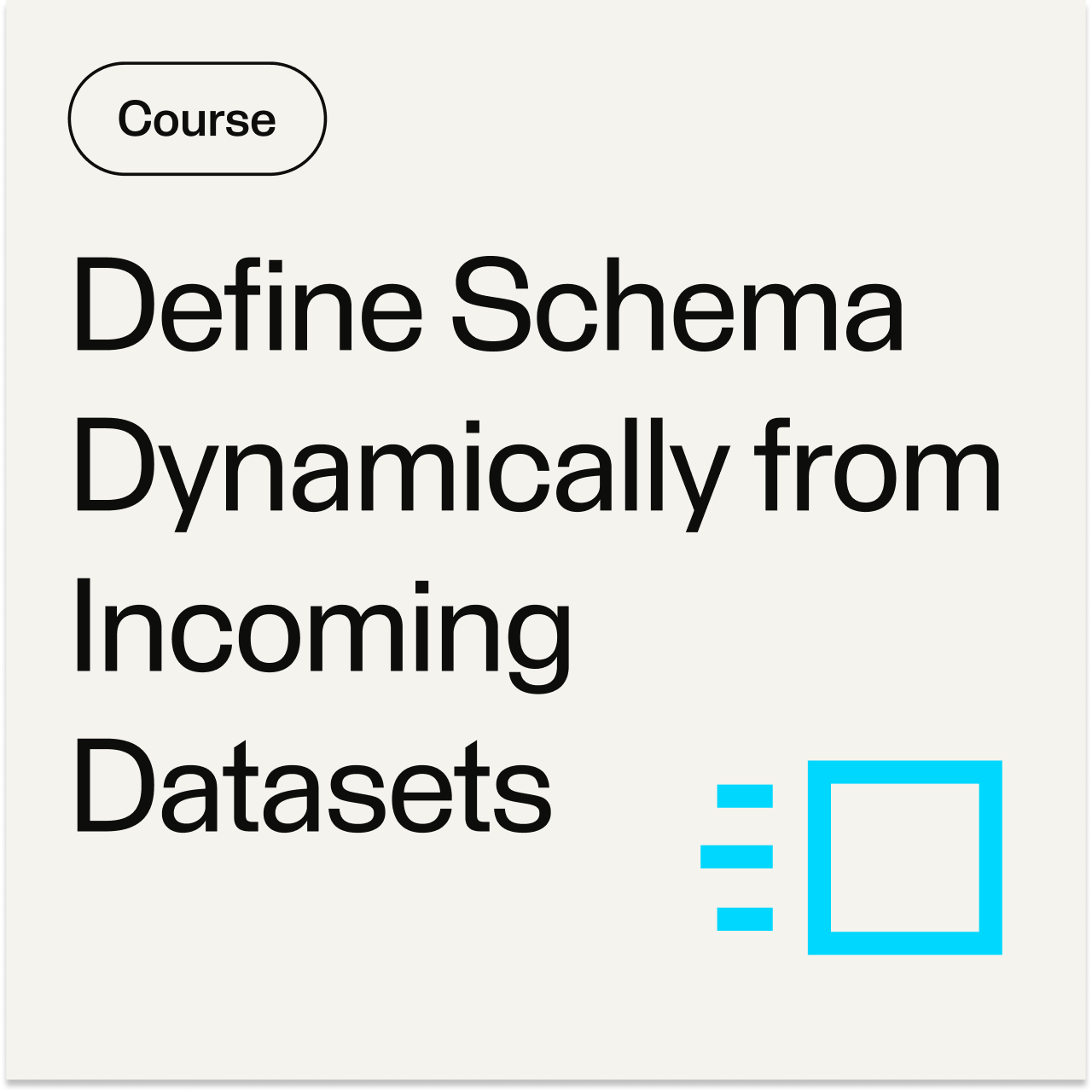
Define Schema Dynamically from Incoming Datasets 2022.1
Create dynamic workflows that use the schema from an incoming dataset.
0 hr 20 min
Advanced
Courses
On-Demand
FME Form
2022.1

Read and Write Archive and Web Formats 2022.1
Read data from archive formats like ZIP, URLs, and web services like Amazon S3 or Google Drive.
0 hr 25 min
Intermediate
Courses
On-Demand
FME Form
2022.1

Debug Workspaces 2024.0
Learn how to create and debug documented workspaces that are easy to maintain and take advantage of FME’s performance.
0 hr 46 min
Intermediate
Courses
On-Demand
FME Form
2024.0

Filter Data 2024.0
Filter data by attribute values to stream data to different destinations or transform it selectively.
0 hr 35 min
Beginner
Courses
On-Demand
FME Form
2024.0

Design Workspaces for Advanced Reading and Writing 2024.0
Use prototyping, multiple readers and writers, parameters, and partial runs to craft well-designed workspaces.
1 hr 15 min
Intermediate
Courses
On-Demand
FME Form
2024.0

Create and Modify Attributes 2024.0
Create, delete, rename, and calculate values for attributes to extract value from data.
0 hr 55 min
Beginner
Courses
On-Demand
FME Form
2024.0

Join Tables 2024.0
Join datasets together based on a shared key using FME transformers like the FeatureJoiner or FeatureMerger.
0 hr 25 min
Intermediate
Courses
On-Demand
FME Form
2024.0

Use Conditional Values 2024.0
Efficiently set values based on conditional tests using Conditional Values.
0 hr 20 min
Beginner
Courses
On-Demand
FME Form
2024.0

Document Your Workspace 2024.0
Follow best practices for workspace design, using bookmarks and annotation to organize your work.
1 hr 10 min
Beginner
Courses
On-Demand
FME Form
2024.0

Work with Multiple Data Models Using Lists 2024.0
Unlock the power of FME for more complex workflows by working with list attributes.
0 hr 40 min
Intermediate
Courses
On-Demand
FME Form
2024.0

Compare Workspaces 2022.0
Make collaboration easier by comparing different versions of data integration workflows and merging changes.
0 hr 30 min
Intermediate
Courses
On-Demand
FME Form
2022.0

Work with Multiple Data Models Using Lists 2021.0
Unlock the power of FME for more complex workflows by working with list attributes.
0 hr 40 min
Advanced
Courses
On-Demand
FME Form
2021.1

Optimize Workspace Performance 2022.0
Use best practices to improve the performance of readers, writers, databases, and FME Flow workflows.
1 hr 0 min
Intermediate
Courses
On-Demand
FME Flow
FME Form
2022.0

Design for Performance 2022.0
Design your workspaces for speed using these best practice techniques.
1 hr 5 min
Intermediate
Courses
On-Demand
FME Form
2022.0

Read and Write Your Data Mid-Workflow 2025.1
Read and write data in the middle of your workflow using the transformers like the FeatureReader and FeatureWriter.
0 hr 25 min
Intermediate
Courses
On-Demand
FME Form
2025.1

Design for Performance 2025.1
Design your workspaces for speed using these best practice techniques.
1 hr 5 min
Advanced
Courses
On-Demand
FME Form
2025.1

Optimize Workspace Performance 2025.1
Use best practices to improve the performance of readers, writers, databases, and FME Flow workflows.
1 hr 0 min
Advanced
Courses
On-Demand
FME Form
2025.1

Compare Workspaces 2025.1
Make collaboration easier by comparing data integration workflows and choosing which differences to keep.
0 hr 30 min
Advanced
Courses
On-Demand
FME Form
2025.1

Construct Schema Dynamically with the SchemaScanner 2025.1
Build data integration workflows that can handle schema drift and flexibly adjust to changing requirements.
0 hr 46 min
Advanced
Courses
On-Demand
FME Form
2025.1

FME Form Advanced
Earn your certificate for completing the FME Form Advanced learning path.
auto-registration

Read From and Write To Multiple Locations 2025.1
Quickly and easily create many layers or files in your output using multiple readers/writers or fanouts.
0 hr 25 min
Intermediate
Courses
On-Demand
FME Form
2025.1

Define Schema Dynamically from Incoming Datasets 2025.1
Create dynamic workflows that use the schema from an incoming dataset.
0 hr 20 min
Advanced
Courses
On-Demand
FME Form
2025.1

Define Schema Dynamically from an External Source 2025.1
Unlock the dynamic power of FME by defining schemas from datasets outside the workspace.
0 hr 50 min
Advanced
Courses
On-Demand
FME Form
2025.1

Read and Write Any Data Format with Generic Mode 2025.1
The Generic Reader and Generic Writer allow FME workspaces to be freed from format restrictions.
0 hr 40 min
Advanced
Courses
On-Demand
FME Form
2025.1

Read and Write Archive and Web Formats 2025.1
Read data from archive formats like ZIP, URLs, and web services like Amazon S3 or Google Drive.
0 hr 25 min
Intermediate
Courses
On-Demand
FME Form
2025.1

Leverage Ordered Data 2025.1
Extract insights from ordered data by creating attributes with values created from adjacent features.
0 hr 25 min
Intermediate
Courses
On-Demand
FME Form
2025.1

Improve Data Quality by Handling Null and Missing Values 2025.1
Reduce the likelihood of mistakes and errors in your data by identifying and addressing missing, empty, and null values.
0 hr 25 min
Intermediate
Courses
On-Demand
FME Form
2025.1

Create Flexible Workspaces with Parameters 2025.1
Take fine-tuned control over your workspaces and allow the user to decide how they run.
1 hr 5 min
Intermediate
Courses
On-Demand
FME Form
2025.1

Design Modular and Maintainable Workspaces with Custom Transformers 2025.1
Adopt enterprise data integration best practices by creating reusable and encapsulated workflows.
0 hr 50 min
Intermediate
Courses
On-Demand
FME Form
2025.1

Build a Library of Custom Transformers 2025.1
Choose between linked and embedded transformers and share versioned transformers with your colleagues.
0 hr 30 min
Intermediate
Courses
On-Demand
FME Form
2025.1

Debug Workspaces 2022.0
Learn how to create and debug documented workspaces that are easy to maintain and take advantage of FME’s performance.
0 hr 55 min
Beginner
Courses
On-Demand
FME Form
2022.0

Filter Data 2022.0
Filter data by attribute values to stream data to different destinations or transform it selectively.
0 hr 45 min
Beginner
Courses
On-Demand
FME Form
2022.0

Document Your Workspace 2022.0
Follow best practices for workspace design, using bookmarks and annotation to organize your work.
1 hr 10 min
Beginner
Courses
On-Demand
FME Form
2022.0

Create and Modify Attributes 2022.0
Create, delete, rename, and calculate values for attributes to extract value from data.
0 hr 50 min
Beginner
Courses
On-Demand
FME Form
2022.0

Design Workspaces for Advanced Reading and Writing 2022.0
Use prototyping, multiple readers and writers, parameters, and partial runs to craft well-designed workspaces.
1 hr 25 min
Beginner
Advanced
Courses
On-Demand
FME Form
2022.0

Join Tables 2022.0
Join datasets together based on a shared key using FME transformers like the FeatureJoiner or FeatureMerger.
0 hr 25 min
Beginner
Intermediate
Courses
On-Demand
FME Form
2022.0

Use Conditional Values 2022.0
Efficiently set values based on conditional tests using Conditional Values.
0 hr 20 min
Beginner
Courses
On-Demand
FME Form
2022.0

Build Versatile Automations 2022.0
Run workspaces in response to changes in a file directory or incoming email.
1 hr 0 min
Advanced
Courses
On-Demand
FME Flow
2022.0

Build Basic Automations 2022.0
Learn the basics of FME Flow Automations, which run workspaces on a schedule or in response to a trigger.
0 hr 30 min
Advanced
Courses
On-Demand
FME Flow
2022.0

Connect Automations with Job Orchestration 2022.0
Coordinate multiple jobs in an Automation and pass details from one workspace to another.
1 hr 0 min
Advanced
Courses
On-Demand
FME Flow
2022.0

Automate Workflows 2022.0
Save time by using FME to turn manual tasks into repeatable or event-based workflows.
0 hr 55 min
Beginner
Courses
On-Demand
FME Flow
2022.0

Why Data Integration? 2022.0
Understand the value of spatial data integration and how to achieve it with FME.
0 hr 30 min
Beginner
Courses
On-Demand
FME Flow
FME Form
2022.0

Connect To Data 2022.0
Learn to eliminate data silos and move information between 450+ applications using FME's visual interface.
0 hr 45 min
Beginner
Courses
On-Demand
FME Form
2022.0

Transform Data 2022.0
Learn how to ensure data quality throughout the integration lifecycle with FME transformers.
1 hr 0 min
Beginner
Courses
On-Demand
FME Form
2022.0

Run Workflows on a Schedule 2025.1
Save time by building Automations to run workspaces at scheduled intervals using FME Flow.
0 hr 20 min
Intermediate
Courses
On-Demand
FME Flow
2025.1

Respond to Real-time Events 2025.1
Run workspaces in response to changes in a file directory or incoming email.
0 hr 50 min
Intermediate
Courses
On-Demand
FME Flow
2025.1

No-Code Automation with FME Flow 2025.1
Learn the basics of automating FME workflows to run on a schedule or in response to a trigger.
0 hr 25 min
Beginner
Courses
On-Demand
FME Flow
2025.1

Job Orchestration in Automations 2025.1
Run jobs in sequence or in parallel, use the Split-Merge Block, and use the Automations Writer to pass information between nodes.
0 hr 55 min
Advanced
Courses
On-Demand
FME Flow
2025.1

Automate Workflows 2023.0
Save time by using FME to turn manual tasks into repeatable or event-based workflows.
0 hr 55 min
Beginner
Courses
On-Demand
FME Flow
2023.0

Transform Data 2023.0
Learn how to ensure data quality throughout the integration lifecycle with FME transformers.
1 hr 0 min
Beginner
Courses
On-Demand
FME Form
2023.0

Connect To Data 2023.0
Learn to eliminate data silos and move information between 450+ applications using FME's visual interface.
1 hr 10 min
Beginner
Courses
On-Demand
FME Form
2023.0

Why Data Integration? 2023.0
Understand the value of spatial data integration and how to achieve it with FME.
0 hr 30 min
Beginner
Courses
On-Demand
FME Flow
FME Form
2023.0

Transform Data 2025.0
Learn how to ensure data quality throughout the integration lifecycle with FME transformers.
1 hr 10 min
Beginner
Courses
On-Demand
FME Form
2025.0

Connect To Data 2025.0
Learn to eliminate data silos and move information between 500+ applications using FME's visual interface.
1 hr 10 min
Beginner
Courses
On-Demand
FME Form
2025.0

Why Data Integration? 2025.0
Understand the value of spatial data integration and how to achieve it with FME.
0 hr 28 min
Beginner
Courses
On-Demand
FME Form
2025.0

Automate Workflows 2025.0
Save time by using FME to turn manual tasks into repeatable or event-based workflows.
0 hr 56 min
Beginner
Courses
On-Demand
FME Flow
2025.0

Integrate Data with the FME Platform
Earn your certificate for completing the Integrate Data with the FME Platform learning path.
auto-registration

Share and Manage FME Flow Content 2025.0
Share and manage FME Flow items, workspaces, and data, including using FME Flow projects.
0 hr 40 min
Intermediate
Courses
On-Demand
FME Flow
2025.0

What is FME Flow? 2025.0
Get to know FME Flow, where you deploy your workflows and bring your data to life.
0 hr 30 min
Beginner
Courses
On-Demand
FME Flow
2025.0

Deploy Workspaces on FME Flow 2025.0
Move your workflows from FME Form to FME Flow. Publish, run, and inspect workflows on FME Flow.
0 hr 50 min
Beginner
Courses
On-Demand
FME Flow
2025.0

Build Self-Serve Workflows with Parameters 2025.0
Give end-users control over how workspaces run on FME Flow, creating flexible and adaptable data integration workflows.
0 hr 45 min
Intermediate
Courses
On-Demand
FME Flow
2025.0

Manage FME Flow Data and Connections 2025.0
Add, securely connect, and share database and web service credentials using FME Flow.
1 hr 20 min
Intermediate
Courses
On-Demand
FME Flow
2025.0

Transform Data 2023.0
Learn how to ensure data quality throughout the integration lifecycle with FME transformers.
1 hr 0 min
Beginner
Courses
On-Demand
FME Form
2023.0

Create and Modify Attributes 2023.1
Create, delete, rename, and calculate values for attributes to extract value from data.
0 hr 55 min
Beginner
Courses
On-Demand
FME Form
2023.1

Why Data Integration? 2023.0
Understand the value of spatial data integration and how to achieve it with FME.
0 hr 30 min
Beginner
Courses
On-Demand
FME Flow
FME Form
2023.0

Connect To Data 2023.0
Learn to eliminate data silos and move information between 450+ applications using FME's visual interface.
1 hr 10 min
Beginner
Courses
On-Demand
FME Form
2023.0

Debug Workspaces 2023.1
Learn how to create and debug documented workspaces that are easy to maintain and take advantage of FME’s performance.
0 hr 55 min
Intermediate
Courses
On-Demand
FME Form
2023.1

Design Workspaces for Advanced Reading and Writing 2023.1
Use prototyping, multiple readers and writers, parameters, and partial runs to craft well-designed workspaces.
1 hr 55 min
Beginner
Courses
On-Demand
FME Form
2023.1

Filter Data 2023.1
Filter data by attribute values to stream data to different destinations or transform it selectively.
0 hr 35 min
Beginner
Courses
On-Demand
FME Form
2023.1

Use Conditional Values 2023.1
Efficiently set values based on conditional tests using Conditional Values.
0 hr 20 min
Beginner
Courses
On-Demand
FME Form
2023.1

Work with Multiple Data Models Using Lists 2023.1
Unlock the power of FME for more complex workflows by working with list attributes.
0 hr 40 min
Intermediate
Courses
On-Demand
FME Form
2023.1

Document Your Workspace 2023.1
Follow best practices for workspace design, using bookmarks and annotation to organize your work.
1 hr 10 min
Beginner
Courses
On-Demand
FME Form
2023.1

Join Tables 2023.1
Join datasets together based on a shared key using FME transformers like the FeatureJoiner or FeatureMerger.
0 hr 25 min
Beginner
Intermediate
Courses
On-Demand
FME Form
2023.1

Manage FME Flow Data and Connections 2022.0
Add, securely connect, and share database and web service credentials using FME Flow.
1 hr 0 min
Intermediate
Courses
On-Demand
FME Flow
2022.0

Build Basic Self-Serve Workflows 2022.0
Give end-users control over how workspaces run on FME Flow, creating flexible and adaptable data integration workflows.
0 hr 40 min
Intermediate
Courses
On-Demand
FME Flow
2022.0

Create No-Code Web Apps 2022.0
Create web apps to share your data integration workflows without needing to code.
0 hr 45 min
Advanced
Courses
On-Demand
FME Flow
2022.0

Build Versatile Self-Serve Workflows 2022.0
Give end-users control over how workspaces run on FME Flow, creating flexible and adaptable data integration workflows.
1 hr 0 min
Intermediate
Courses
On-Demand
FME Flow
2022.0

Learn Spatial Data Concepts 2024.2
Learn how locations on the earth are represented digitally and the basics of working with spatial data.
0 hr 50 min
Beginner
Courses
On-Demand
FME Form
2024.2

Work with Geometry 2024.2
Learn FME's geometry model, types, and transformers for handling spatial data, including aggregates, multis, measures, and fixing invalid geometries.
0 hr 45 min
Beginner
Courses
FME Form

Turn Coordinates Into Geometry 2024.2
Transform coordinates into points, lines, and polygons with FME readers and transformers.
0 hr 35 min
Beginner
Courses
On-Demand
FME Form
2024.2

Analyze Spatial Data 2024.2
Conduct basic spatial analysis by comparing the location of features or filtering data based on location.
0 hr 40 min
Beginner
Courses
On-Demand
FME Form
2024.2

Integrate Spatial Data
Earn your certificate for completing the Integrate Spatial Data learning path.
auto-registration

Build Basic Automations 2023.0
Learn the basics of FME Flow Automations, which run workspaces on a schedule or in response to a trigger.
0 hr 30 min
Intermediate
Courses
On-Demand
FME Flow
2023.0

Manage FME Flow Data and Connections 2023.0
Add, securely connect, and share database and web service credentials using FME Flow.
1 hr 0 min
Intermediate
Courses
On-Demand
FME Flow
2023.0

Build Versatile Automations 2023.0
Run workspaces in response to changes in a file directory or incoming email.
1 hr 0 min
Intermediate
Courses
On-Demand
FME Flow
2023.0

FME Flow Authoring
Earn your certificate for completing the FME Flow Authoring learning path.
auto-registration

Publish Workflows to the Web 2023.0
Move your workflows from FME Form to FME Flow. Publish, run, and share workflows within your organization.
0 hr 50 min
Beginner
Live Training
Courses
On-Demand
FME Flow
2023.0

Build Basic Self-Serve Workflows 2023.0
Give end-users control over how workspaces run on FME Flow, creating flexible and adaptable data integration workflows.
0 hr 40 min
Intermediate
Courses
On-Demand
2023.0

Build Versatile Self-Serve Workflows 2023.0
Give end-users control over how workspaces run on FME Flow, creating flexible and adaptable data integration workflows.
1 hr 0 min
Intermediate
Courses
On-Demand
FME Flow
2023.0

What is FME Flow? 2023.0
Get to know FME Flow, where you deploy your workflows and bring your data to life.
0 hr 25 min
Beginner
Courses
On-Demand
FME Flow
2023.0

Create No-Code Web Apps 2023.0
Create web apps to share your data integration workflows without needing to code.
0 hr 35 min
Intermediate
Courses
On-Demand
FME Flow
2023.0

Connect Automations with Job Orchestration 2023.0
Coordinate multiple jobs in an Automation and pass details from one workspace to another.
1 hr 0 min
Intermediate
Courses
On-Demand
FME Flow
2023.0

Leverage Ordered Data 2021.1
Extract insights from ordered data by creating attributes with values created from adjacent features.
0 hr 25 min
Advanced
Courses
On-Demand
FME Form
2021.1

Read From and Write To Multiple Locations 2021.1
Quickly and easily create many layers or files in your output using multiple readers/writers or fanouts.
0 hr 25 min
Advanced
Courses
On-Demand
FME Form
2021.1

Design Modular and Maintainable Workspaces with Custom Transformers 2022.0
Adopt enterprise data integration best practices by creating reusable and encapsulated workflows.
0 hr 50 min
Advanced
Courses
On-Demand
FME Form
2022.0

Improve Data Quality by Handling Null and Missing Values 2021.1
Reduce the likelihood of mistakes and errors in your data by identifying and addressing missing, empty, and null values.
0 hr 25 min
Advanced
Courses
On-Demand
FME Form
2021.1

Build a Library of Custom Transformers 2022.0
Choose between linked and embedded transformers and share versioned transformers with your colleagues.
0 hr 30 min
Advanced
Courses
On-Demand
FME Form
2022.0

Learn Spatial Data Concepts 2022.0
Learn how locations on the earth are represented digitally and the basics of working with spatial data.
0 hr 50 min
Beginner
Courses
On-Demand
FME Form
2022.0

Turn Coordinates Into Geometry 2022.0
Transform coordinates into points, lines, and polygons with FME readers and transformers.
0 hr 35 min
Beginner
Courses
On-Demand
FME Form
2022.0

Analyze Spatial Data 2022.0
Conduct basic spatial analysis by comparing the location of features or filtering data based on location.
0 hr 40 min
Beginner
Courses
FME Form
2022.0

Integrate Data with the FME Platform
Earn your certificate for completing the Integrate Data with the FME Platform learning path.
auto-registration

Why Data Integration? 2024.0
Understand the value of spatial data integration and how to achieve it with FME.
0 hr 30 min
Beginner
Courses
On-Demand
FME Flow
FME Form
2024.0

Connect To Data 2024.0
Learn to eliminate data silos and move information between 500+ applications using FME's visual interface.
1 hr 10 min
Beginner
Courses
On-Demand
FME Form
2024.0

Transform Data 2024.0
Learn how to ensure data quality throughout the integration lifecycle with FME transformers.
1 hr 10 min
Beginner
Courses
On-Demand
FME Form
2024.0

Automate Workflows 2024.0
Save time by using FME to turn manual tasks into repeatable or event-based workflows.
0 hr 56 min
Beginner
Courses
On-Demand
FME Flow
2024.0

Work with Multiple Data Models Using Lists 2025.0
Unlock the power of FME for more complex workflows by working with list attributes.
0 hr 40 min
Beginner
Courses
On-Demand
FME Form
2025.0

Create and Modify Attributes 2025.0
Create, delete, rename, and calculate values for attributes to extract value from data.
1 hr 5 min
Beginner
Courses
On-Demand
FME Form
2025.0

FME Form Basic
Earn your certificate for completing the FME Form Basic learning path.
auto-registration

Filter Data 2025.0
Filter data by attribute values to stream data to different destinations or transform it selectively.
0 hr 25 min
Beginner
Courses
On-Demand
FME Form
2025.0

Connect To Data 2025.0
Learn to eliminate data silos and move information between 500+ applications using FME's visual interface.
1 hr 10 min
Beginner
Courses
On-Demand
FME Form
2025.0

Why Data Integration? 2025.0
Understand the value of spatial data integration and how to achieve it with FME.
0 hr 28 min
Beginner
Courses
On-Demand
FME Form
2025.0

Document Your Workspace 2025.0
Follow best practices for workspace design, using bookmarks and annotation to organize your work.
0 hr 50 min
Beginner
Courses
On-Demand
FME Form
2025.0

Design Workspaces for Advanced Reading and Writing 2025.0
Use prototyping, multiple readers and writers, parameters, and partial runs to craft well-designed workspaces.
0 hr 40 min
Intermediate
Courses
On-Demand
FME Form
2025.0

Join Tables 2025.0
Join datasets together based on a shared key using FME transformers like the FeatureJoiner or FeatureMerger.
0 hr 25 min
Beginner
Courses
On-Demand
FME Form
2025.0

Transform Data 2025.0
Learn how to ensure data quality throughout the integration lifecycle with FME transformers.
1 hr 10 min
Beginner
Courses
On-Demand
FME Form
2025.0

Debug Workspaces 2025.0
Learn how to create and debug documented workspaces that are easy to maintain and take advantage of FME’s performance.
0 hr 36 min
Beginner
Courses
On-Demand
FME Form
2025.0

Use Conditional Values 2025.0
Efficiently set values based on conditional tests using Conditional Values.
0 hr 20 min
Beginner
Courses
On-Demand
FME Form
2025.0

Give End-Users Control with App Parameters 2025.1
Give end-users control over App inputs through parameters
0 hr 50 min
Intermediate
Courses
On-Demand
FME Flow
2025.1

Create No-Code Web Apps 2025.1
Create web apps to share your data integration workflows without needing to code.
0 hr 55 min
Intermediate
Courses
On-Demand
FME Flow
2025.1

What is FME Flow? 2022.0
Get to know FME Flow, where you deploy your workflows and bring your data to life.
0 hr 25 min
Beginner
Courses
On-Demand
FME Flow
2022.0

Publish Workflows to the Web 2022.0
Move your workflows from FME Form to FME Flow. Publish, run, and share workflows within your organization.
0 hr 50 min
Beginner
Courses
On-Demand
FME Flow
FME Form
2022.0

Work with Multiple Data Models Using Lists 2023.1
Unlock the power of FME for more complex workflows by working with list attributes.
0 hr 40 min
Intermediate
Courses
On-Demand
FME Form
2023.1

Build a Library of Custom Transformers 2023.2
Choose between linked and embedded transformers and share versioned transformers with your colleagues.
0 hr 30 min
Advanced
Courses
On-Demand
FME Form
2023.2

Compare Workspaces 2023.0
Make collaboration easier by comparing data integration workflows and choosing which differences to keep.
0 hr 30 min
Intermediate
Courses
On-Demand
FME Form
2023.0

Create Flexible Workspaces with Parameters 2023.2
Take fine-tuned control over your workspaces and allow the user to decide how they run.
1 hr 5 min
Advanced
Courses
On-Demand
FME Form
2023.2

Design for Performance 2023.2
Design your workspaces for speed using these best practice techniques.
1 hr 5 min
Advanced
Courses
On-Demand
FME Form
2023.2

Design Modular and Maintainable Workspaces with Custom Transformers 2023.2
Adopt enterprise data integration best practices by creating reusable and encapsulated workflows.
0 hr 50 min
Advanced
Courses
On-Demand
FME Form
2023.2

Improve Data Quality by Handling Null and Missing Values 2023.2
Reduce the likelihood of mistakes and errors in your data by identifying and addressing missing, empty, and null values.
0 hr 25 min
Advanced
Courses
On-Demand
FME Form
2023.2

Leverage Ordered Data 2023.2
Extract insights from ordered data by creating attributes with values created from adjacent features.
0 hr 25 min
Advanced
Courses
On-Demand
FME Form
2023.2

Optimize Workspace Performance 2023.2
Use best practices to improve the performance of readers, writers, databases, and FME Flow workflows.
1 hr 0 min
Advanced
Courses
On-Demand
FME Form
2023.2

Read From and Write To Multiple Locations 2023.2
Quickly and easily create many layers or files in your output using multiple readers/writers or fanouts.
0 hr 25 min
Advanced
Courses
On-Demand
FME Form
2023.2

Read and Write Your Data Mid-Workflow 2022.1
Read and write data in the middle of your workflow using the transformers like the FeatureReader and FeatureWriter.
0 hr 25 min
Intermediate
Courses
On-Demand
FME Form
2022.1

Define Schema Dynamically from an External Source 2021.1
Unlock the dynamic power of FME by defining schemas from datasets outside the workspace.
0 hr 50 min
Advanced
Courses
On-Demand
FME Form
2022.1

Read and Write Any Data Format with Generic Mode 2022.1
The Generic Reader and Generic Writer allow FME workspaces to be freed from format restrictions.
0 hr 40 min
Advanced
Courses
On-Demand
FME Form
2022.1

Construct Schema Dynamically with the SchemaScanner 2022.1
Build data integration workflows that can handle schema drift and flexibly adjust to changing requirements.
0 hr 45 min
Intermediate
Courses
On-Demand
FME Form
2022.1

Define Schema Dynamically from Incoming Datasets 2022.1
Create dynamic workflows that use the schema from an incoming dataset.
0 hr 20 min
Advanced
Courses
On-Demand
FME Form
2022.1

Read and Write Archive and Web Formats 2022.1
Read data from archive formats like ZIP, URLs, and web services like Amazon S3 or Google Drive.
0 hr 25 min
Intermediate
Courses
On-Demand
FME Form
2022.1

Transform Data 2024.0
Learn how to ensure data quality throughout the integration lifecycle with FME transformers.
1 hr 10 min
Beginner
Courses
On-Demand
FME Form
2024.0

Why Data Integration? 2024.0
Understand the value of spatial data integration and how to achieve it with FME.
0 hr 30 min
Beginner
Courses
On-Demand
FME Flow
FME Form
2024.0

Debug Workspaces 2024.0
Learn how to create and debug documented workspaces that are easy to maintain and take advantage of FME’s performance.
0 hr 46 min
Intermediate
Courses
On-Demand
FME Form
2024.0

Filter Data 2024.0
Filter data by attribute values to stream data to different destinations or transform it selectively.
0 hr 35 min
Beginner
Courses
On-Demand
FME Form
2024.0

Design Workspaces for Advanced Reading and Writing 2024.0
Use prototyping, multiple readers and writers, parameters, and partial runs to craft well-designed workspaces.
1 hr 15 min
Intermediate
Courses
On-Demand
FME Form
2024.0

Create and Modify Attributes 2024.0
Create, delete, rename, and calculate values for attributes to extract value from data.
0 hr 55 min
Beginner
Courses
On-Demand
FME Form
2024.0

Join Tables 2024.0
Join datasets together based on a shared key using FME transformers like the FeatureJoiner or FeatureMerger.
0 hr 25 min
Intermediate
Courses
On-Demand
FME Form
2024.0

Use Conditional Values 2024.0
Efficiently set values based on conditional tests using Conditional Values.
0 hr 20 min
Beginner
Courses
On-Demand
FME Form
2024.0

Connect To Data 2024.0
Learn to eliminate data silos and move information between 500+ applications using FME's visual interface.
1 hr 10 min
Beginner
Courses
On-Demand
FME Form
2024.0

Document Your Workspace 2024.0
Follow best practices for workspace design, using bookmarks and annotation to organize your work.
1 hr 10 min
Beginner
Courses
On-Demand
FME Form
2024.0

Work with Multiple Data Models Using Lists 2024.0
Unlock the power of FME for more complex workflows by working with list attributes.
0 hr 40 min
Intermediate
Courses
On-Demand
FME Form
2024.0

Compare Workspaces 2022.0
Make collaboration easier by comparing different versions of data integration workflows and merging changes.
0 hr 30 min
Intermediate
Courses
On-Demand
FME Form
2022.0

Work with Multiple Data Models Using Lists 2021.0
Unlock the power of FME for more complex workflows by working with list attributes.
0 hr 40 min
Advanced
Courses
On-Demand
FME Form
2021.1

Optimize Workspace Performance 2022.0
Use best practices to improve the performance of readers, writers, databases, and FME Flow workflows.
1 hr 0 min
Intermediate
Courses
On-Demand
FME Flow
FME Form
2022.0

Improve Data Quality by Handling Null and Missing Values 2021.1
Reduce the likelihood of mistakes and errors in your data by identifying and addressing missing, empty, and null values.
0 hr 25 min
Advanced
Courses
On-Demand
FME Form
2021.1

Read From and Write To Multiple Locations 2021.1
Quickly and easily create many layers or files in your output using multiple readers/writers or fanouts.
0 hr 25 min
Advanced
Courses
On-Demand
FME Form
2021.1

Design Modular and Maintainable Workspaces with Custom Transformers 2022.0
Adopt enterprise data integration best practices by creating reusable and encapsulated workflows.
0 hr 50 min
Advanced
Courses
On-Demand
FME Form
2022.0

Design for Performance 2022.0
Design your workspaces for speed using these best practice techniques.
1 hr 5 min
Intermediate
Courses
On-Demand
FME Form
2022.0

Leverage Ordered Data 2021.1
Extract insights from ordered data by creating attributes with values created from adjacent features.
0 hr 25 min
Advanced
Courses
On-Demand
FME Form
2021.1

Build a Library of Custom Transformers 2022.0
Choose between linked and embedded transformers and share versioned transformers with your colleagues.
0 hr 30 min
Advanced
Courses
On-Demand
FME Form
2022.0

Read and Write Your Data Mid-Workflow 2022.1
Read and write data in the middle of your workflow using the transformers like the FeatureReader and FeatureWriter.
0 hr 25 min
Intermediate
Courses
On-Demand
FME Form
2022.1

Read and Write Any Data Format with Generic Mode 2022.1
The Generic Reader and Generic Writer allow FME workspaces to be freed from format restrictions.
0 hr 40 min
Advanced
Courses
On-Demand
FME Form
2022.1

Define Schema Dynamically from Incoming Datasets 2022.1
Create dynamic workflows that use the schema from an incoming dataset.
0 hr 20 min
Advanced
Courses
On-Demand
FME Form
2022.1

Define Schema Dynamically from an External Source 2021.1
Unlock the dynamic power of FME by defining schemas from datasets outside the workspace.
0 hr 50 min
Advanced
Courses
On-Demand
FME Form
2022.1

Construct Schema Dynamically with the SchemaScanner 2022.1
Build data integration workflows that can handle schema drift and flexibly adjust to changing requirements.
0 hr 45 min
Intermediate
Courses
On-Demand
FME Form
2022.1

Read and Write Archive and Web Formats 2022.1
Read data from archive formats like ZIP, URLs, and web services like Amazon S3 or Google Drive.
0 hr 25 min
Intermediate
Courses
On-Demand
FME Form
2022.1

Define Schema Dynamically from Incoming Datasets 2022.1
Create dynamic workflows that use the schema from an incoming dataset.
0 hr 20 min
Advanced
Courses
On-Demand
FME Form
2022.1

Construct Schema Dynamically with the SchemaScanner 2022.1
Build data integration workflows that can handle schema drift and flexibly adjust to changing requirements.
0 hr 45 min
Intermediate
Courses
On-Demand
FME Form
2022.1

Read and Write Your Data Mid-Workflow 2022.1
Read and write data in the middle of your workflow using the transformers like the FeatureReader and FeatureWriter.
0 hr 25 min
Intermediate
Courses
On-Demand
FME Form
2022.1

Read and Write Any Data Format with Generic Mode 2022.1
The Generic Reader and Generic Writer allow FME workspaces to be freed from format restrictions.
0 hr 40 min
Advanced
Courses
On-Demand
FME Form
2022.1

Define Schema Dynamically from an External Source 2021.1
Unlock the dynamic power of FME by defining schemas from datasets outside the workspace.
0 hr 50 min
Advanced
Courses
On-Demand
FME Form
2022.1

Read and Write Archive and Web Formats 2022.1
Read data from archive formats like ZIP, URLs, and web services like Amazon S3 or Google Drive.
0 hr 25 min
Intermediate
Courses
On-Demand
FME Form
2022.1

Read and Write Your Data Mid-Workflow 2025.1
Read and write data in the middle of your workflow using the transformers like the FeatureReader and FeatureWriter.
0 hr 25 min
Intermediate
Courses
On-Demand
FME Form
2025.1

Design for Performance 2025.1
Design your workspaces for speed using these best practice techniques.
1 hr 5 min
Advanced
Courses
On-Demand
FME Form
2025.1

Optimize Workspace Performance 2025.1
Use best practices to improve the performance of readers, writers, databases, and FME Flow workflows.
1 hr 0 min
Advanced
Courses
On-Demand
FME Form
2025.1

Compare Workspaces 2025.1
Make collaboration easier by comparing data integration workflows and choosing which differences to keep.
0 hr 30 min
Advanced
Courses
On-Demand
FME Form
2025.1

Construct Schema Dynamically with the SchemaScanner 2025.1
Build data integration workflows that can handle schema drift and flexibly adjust to changing requirements.
0 hr 46 min
Advanced
Courses
On-Demand
FME Form
2025.1

FME Form Advanced
Earn your certificate for completing the FME Form Advanced learning path.
auto-registration

Read From and Write To Multiple Locations 2025.1
Quickly and easily create many layers or files in your output using multiple readers/writers or fanouts.
0 hr 25 min
Intermediate
Courses
On-Demand
FME Form
2025.1

Define Schema Dynamically from Incoming Datasets 2025.1
Create dynamic workflows that use the schema from an incoming dataset.
0 hr 20 min
Advanced
Courses
On-Demand
FME Form
2025.1

Define Schema Dynamically from an External Source 2025.1
Unlock the dynamic power of FME by defining schemas from datasets outside the workspace.
0 hr 50 min
Advanced
Courses
On-Demand
FME Form
2025.1

Read and Write Any Data Format with Generic Mode 2025.1
The Generic Reader and Generic Writer allow FME workspaces to be freed from format restrictions.
0 hr 40 min
Advanced
Courses
On-Demand
FME Form
2025.1

Read and Write Archive and Web Formats 2025.1
Read data from archive formats like ZIP, URLs, and web services like Amazon S3 or Google Drive.
0 hr 25 min
Intermediate
Courses
On-Demand
FME Form
2025.1

Leverage Ordered Data 2025.1
Extract insights from ordered data by creating attributes with values created from adjacent features.
0 hr 25 min
Intermediate
Courses
On-Demand
FME Form
2025.1

Improve Data Quality by Handling Null and Missing Values 2025.1
Reduce the likelihood of mistakes and errors in your data by identifying and addressing missing, empty, and null values.
0 hr 25 min
Intermediate
Courses
On-Demand
FME Form
2025.1

Create Flexible Workspaces with Parameters 2025.1
Take fine-tuned control over your workspaces and allow the user to decide how they run.
1 hr 5 min
Intermediate
Courses
On-Demand
FME Form
2025.1

Design Modular and Maintainable Workspaces with Custom Transformers 2025.1
Adopt enterprise data integration best practices by creating reusable and encapsulated workflows.
0 hr 50 min
Intermediate
Courses
On-Demand
FME Form
2025.1

Build a Library of Custom Transformers 2025.1
Choose between linked and embedded transformers and share versioned transformers with your colleagues.
0 hr 30 min
Intermediate
Courses
On-Demand
FME Form
2025.1

Create and Modify Attributes 2023.1
Create, delete, rename, and calculate values for attributes to extract value from data.
0 hr 55 min
Beginner
Courses
On-Demand
FME Form
2023.1

Filter Data 2023.1
Filter data by attribute values to stream data to different destinations or transform it selectively.
0 hr 35 min
Beginner
Courses
On-Demand
FME Form
2023.1

Use Conditional Values 2023.1
Efficiently set values based on conditional tests using Conditional Values.
0 hr 20 min
Beginner
Courses
On-Demand
FME Form
2023.1

Join Tables 2023.1
Join datasets together based on a shared key using FME transformers like the FeatureJoiner or FeatureMerger.
0 hr 25 min
Beginner
Intermediate
Courses
On-Demand
FME Form
2023.1

Transform Data 2022.0
Learn how to ensure data quality throughout the integration lifecycle with FME transformers.
1 hr 0 min
Beginner
Courses
On-Demand
FME Form
2022.0

Debug Workspaces 2022.0
Learn how to create and debug documented workspaces that are easy to maintain and take advantage of FME’s performance.
0 hr 55 min
Beginner
Courses
On-Demand
FME Form
2022.0

Why Data Integration? 2022.0
Understand the value of spatial data integration and how to achieve it with FME.
0 hr 30 min
Beginner
Courses
On-Demand
FME Flow
FME Form
2022.0

Filter Data 2022.0
Filter data by attribute values to stream data to different destinations or transform it selectively.
0 hr 45 min
Beginner
Courses
On-Demand
FME Form
2022.0

Connect To Data 2022.0
Learn to eliminate data silos and move information between 450+ applications using FME's visual interface.
0 hr 45 min
Beginner
Courses
On-Demand
FME Form
2022.0

Document Your Workspace 2022.0
Follow best practices for workspace design, using bookmarks and annotation to organize your work.
1 hr 10 min
Beginner
Courses
On-Demand
FME Form
2022.0

Create and Modify Attributes 2022.0
Create, delete, rename, and calculate values for attributes to extract value from data.
0 hr 50 min
Beginner
Courses
On-Demand
FME Form
2022.0

Design Workspaces for Advanced Reading and Writing 2022.0
Use prototyping, multiple readers and writers, parameters, and partial runs to craft well-designed workspaces.
1 hr 25 min
Beginner
Advanced
Courses
On-Demand
FME Form
2022.0

Join Tables 2022.0
Join datasets together based on a shared key using FME transformers like the FeatureJoiner or FeatureMerger.
0 hr 25 min
Beginner
Intermediate
Courses
On-Demand
FME Form
2022.0

Use Conditional Values 2022.0
Efficiently set values based on conditional tests using Conditional Values.
0 hr 20 min
Beginner
Courses
On-Demand
FME Form
2022.0

What is FME Flow? 2022.0
Get to know FME Flow, where you deploy your workflows and bring your data to life.
0 hr 25 min
Beginner
Courses
On-Demand
FME Flow
2022.0

Manage FME Flow Data and Connections 2022.0
Add, securely connect, and share database and web service credentials using FME Flow.
1 hr 0 min
Intermediate
Courses
On-Demand
FME Flow
2022.0

Build Versatile Self-Serve Workflows 2022.0
Give end-users control over how workspaces run on FME Flow, creating flexible and adaptable data integration workflows.
1 hr 0 min
Intermediate
Courses
On-Demand
FME Flow
2022.0

Build Basic Self-Serve Workflows 2022.0
Give end-users control over how workspaces run on FME Flow, creating flexible and adaptable data integration workflows.
0 hr 40 min
Intermediate
Courses
On-Demand
FME Flow
2022.0

Build Versatile Automations 2022.0
Run workspaces in response to changes in a file directory or incoming email.
1 hr 0 min
Advanced
Courses
On-Demand
FME Flow
2022.0

Publish Workflows to the Web 2022.0
Move your workflows from FME Form to FME Flow. Publish, run, and share workflows within your organization.
0 hr 50 min
Beginner
Courses
On-Demand
FME Flow
FME Form
2022.0

Create No-Code Web Apps 2022.0
Create web apps to share your data integration workflows without needing to code.
0 hr 45 min
Advanced
Courses
On-Demand
FME Flow
2022.0

Build Basic Automations 2022.0
Learn the basics of FME Flow Automations, which run workspaces on a schedule or in response to a trigger.
0 hr 30 min
Advanced
Courses
On-Demand
FME Flow
2022.0

Connect Automations with Job Orchestration 2022.0
Coordinate multiple jobs in an Automation and pass details from one workspace to another.
1 hr 0 min
Advanced
Courses
On-Demand
FME Flow
2022.0

Automate Workflows 2022.0
Save time by using FME to turn manual tasks into repeatable or event-based workflows.
0 hr 55 min
Beginner
Courses
On-Demand
FME Flow
2022.0

Why Data Integration? 2022.0
Understand the value of spatial data integration and how to achieve it with FME.
0 hr 30 min
Beginner
Courses
On-Demand
FME Flow
FME Form
2022.0

Connect To Data 2022.0
Learn to eliminate data silos and move information between 450+ applications using FME's visual interface.
0 hr 45 min
Beginner
Courses
On-Demand
FME Form
2022.0

Transform Data 2022.0
Learn how to ensure data quality throughout the integration lifecycle with FME transformers.
1 hr 0 min
Beginner
Courses
On-Demand
FME Form
2022.0

Run Workflows on a Schedule 2025.1
Save time by building Automations to run workspaces at scheduled intervals using FME Flow.
0 hr 20 min
Intermediate
Courses
On-Demand
FME Flow
2025.1

Respond to Real-time Events 2025.1
Run workspaces in response to changes in a file directory or incoming email.
0 hr 50 min
Intermediate
Courses
On-Demand
FME Flow
2025.1

No-Code Automation with FME Flow 2025.1
Learn the basics of automating FME workflows to run on a schedule or in response to a trigger.
0 hr 25 min
Beginner
Courses
On-Demand
FME Flow
2025.1

Job Orchestration in Automations 2025.1
Run jobs in sequence or in parallel, use the Split-Merge Block, and use the Automations Writer to pass information between nodes.
0 hr 55 min
Advanced
Courses
On-Demand
FME Flow
2025.1

Automate Workflows 2023.0
Save time by using FME to turn manual tasks into repeatable or event-based workflows.
0 hr 55 min
Beginner
Courses
On-Demand
FME Flow
2023.0

Transform Data 2023.0
Learn how to ensure data quality throughout the integration lifecycle with FME transformers.
1 hr 0 min
Beginner
Courses
On-Demand
FME Form
2023.0

Connect To Data 2023.0
Learn to eliminate data silos and move information between 450+ applications using FME's visual interface.
1 hr 10 min
Beginner
Courses
On-Demand
FME Form
2023.0

Why Data Integration? 2023.0
Understand the value of spatial data integration and how to achieve it with FME.
0 hr 30 min
Beginner
Courses
On-Demand
FME Flow
FME Form
2023.0

Transform Data 2025.0
Learn how to ensure data quality throughout the integration lifecycle with FME transformers.
1 hr 10 min
Beginner
Courses
On-Demand
FME Form
2025.0

Connect To Data 2025.0
Learn to eliminate data silos and move information between 500+ applications using FME's visual interface.
1 hr 10 min
Beginner
Courses
On-Demand
FME Form
2025.0

Why Data Integration? 2025.0
Understand the value of spatial data integration and how to achieve it with FME.
0 hr 28 min
Beginner
Courses
On-Demand
FME Form
2025.0

Automate Workflows 2025.0
Save time by using FME to turn manual tasks into repeatable or event-based workflows.
0 hr 56 min
Beginner
Courses
On-Demand
FME Flow
2025.0

Integrate Data with the FME Platform
Earn your certificate for completing the Integrate Data with the FME Platform learning path.
auto-registration

Share and Manage FME Flow Content 2025.0
Share and manage FME Flow items, workspaces, and data, including using FME Flow projects.
0 hr 40 min
Intermediate
Courses
On-Demand
FME Flow
2025.0

What is FME Flow? 2025.0
Get to know FME Flow, where you deploy your workflows and bring your data to life.
0 hr 30 min
Beginner
Courses
On-Demand
FME Flow
2025.0

Deploy Workspaces on FME Flow 2025.0
Move your workflows from FME Form to FME Flow. Publish, run, and inspect workflows on FME Flow.
0 hr 50 min
Beginner
Courses
On-Demand
FME Flow
2025.0

Build Self-Serve Workflows with Parameters 2025.0
Give end-users control over how workspaces run on FME Flow, creating flexible and adaptable data integration workflows.
0 hr 45 min
Intermediate
Courses
On-Demand
FME Flow
2025.0

Manage FME Flow Data and Connections 2025.0
Add, securely connect, and share database and web service credentials using FME Flow.
1 hr 20 min
Intermediate
Courses
On-Demand
FME Flow
2025.0

Create and Modify Attributes 2023.1
Create, delete, rename, and calculate values for attributes to extract value from data.
0 hr 55 min
Beginner
Courses
On-Demand
FME Form
2023.1

Debug Workspaces 2023.1
Learn how to create and debug documented workspaces that are easy to maintain and take advantage of FME’s performance.
0 hr 55 min
Intermediate
Courses
On-Demand
FME Form
2023.1

Design Workspaces for Advanced Reading and Writing 2023.1
Use prototyping, multiple readers and writers, parameters, and partial runs to craft well-designed workspaces.
1 hr 55 min
Beginner
Courses
On-Demand
FME Form
2023.1

Filter Data 2023.1
Filter data by attribute values to stream data to different destinations or transform it selectively.
0 hr 35 min
Beginner
Courses
On-Demand
FME Form
2023.1

Use Conditional Values 2023.1
Efficiently set values based on conditional tests using Conditional Values.
0 hr 20 min
Beginner
Courses
On-Demand
FME Form
2023.1

Work with Multiple Data Models Using Lists 2023.1
Unlock the power of FME for more complex workflows by working with list attributes.
0 hr 40 min
Intermediate
Courses
On-Demand
FME Form
2023.1

Document Your Workspace 2023.1
Follow best practices for workspace design, using bookmarks and annotation to organize your work.
1 hr 10 min
Beginner
Courses
On-Demand
FME Form
2023.1

Join Tables 2023.1
Join datasets together based on a shared key using FME transformers like the FeatureJoiner or FeatureMerger.
0 hr 25 min
Beginner
Intermediate
Courses
On-Demand
FME Form
2023.1

Manage FME Flow Data and Connections 2022.0
Add, securely connect, and share database and web service credentials using FME Flow.
1 hr 0 min
Intermediate
Courses
On-Demand
FME Flow
2022.0

Build Basic Self-Serve Workflows 2022.0
Give end-users control over how workspaces run on FME Flow, creating flexible and adaptable data integration workflows.
0 hr 40 min
Intermediate
Courses
On-Demand
FME Flow
2022.0

Create No-Code Web Apps 2022.0
Create web apps to share your data integration workflows without needing to code.
0 hr 45 min
Advanced
Courses
On-Demand
FME Flow
2022.0

Build Versatile Self-Serve Workflows 2022.0
Give end-users control over how workspaces run on FME Flow, creating flexible and adaptable data integration workflows.
1 hr 0 min
Intermediate
Courses
On-Demand
FME Flow
2022.0

Learn Spatial Data Concepts 2024.2
Learn how locations on the earth are represented digitally and the basics of working with spatial data.
0 hr 50 min
Beginner
Courses
On-Demand
FME Form
2024.2

Work with Geometry 2024.2
Learn FME's geometry model, types, and transformers for handling spatial data, including aggregates, multis, measures, and fixing invalid geometries.
0 hr 45 min
Beginner
Courses
FME Form

Turn Coordinates Into Geometry 2024.2
Transform coordinates into points, lines, and polygons with FME readers and transformers.
0 hr 35 min
Beginner
Courses
On-Demand
FME Form
2024.2

Analyze Spatial Data 2024.2
Conduct basic spatial analysis by comparing the location of features or filtering data based on location.
0 hr 40 min
Beginner
Courses
On-Demand
FME Form
2024.2

Integrate Spatial Data
Earn your certificate for completing the Integrate Spatial Data learning path.
auto-registration

Build Basic Automations 2023.0
Learn the basics of FME Flow Automations, which run workspaces on a schedule or in response to a trigger.
0 hr 30 min
Intermediate
Courses
On-Demand
FME Flow
2023.0

Manage FME Flow Data and Connections 2023.0
Add, securely connect, and share database and web service credentials using FME Flow.
1 hr 0 min
Intermediate
Courses
On-Demand
FME Flow
2023.0

Build Versatile Automations 2023.0
Run workspaces in response to changes in a file directory or incoming email.
1 hr 0 min
Intermediate
Courses
On-Demand
FME Flow
2023.0

Publish Workflows to the Web 2023.0
Move your workflows from FME Form to FME Flow. Publish, run, and share workflows within your organization.
0 hr 50 min
Beginner
Live Training
Courses
On-Demand
FME Flow
2023.0

Build Basic Self-Serve Workflows 2023.0
Give end-users control over how workspaces run on FME Flow, creating flexible and adaptable data integration workflows.
0 hr 40 min
Intermediate
Courses
On-Demand
2023.0

Build Versatile Self-Serve Workflows 2023.0
Give end-users control over how workspaces run on FME Flow, creating flexible and adaptable data integration workflows.
1 hr 0 min
Intermediate
Courses
On-Demand
FME Flow
2023.0

What is FME Flow? 2023.0
Get to know FME Flow, where you deploy your workflows and bring your data to life.
0 hr 25 min
Beginner
Courses
On-Demand
FME Flow
2023.0

Create No-Code Web Apps 2023.0
Create web apps to share your data integration workflows without needing to code.
0 hr 35 min
Intermediate
Courses
On-Demand
FME Flow
2023.0

Connect Automations with Job Orchestration 2023.0
Coordinate multiple jobs in an Automation and pass details from one workspace to another.
1 hr 0 min
Intermediate
Courses
On-Demand
FME Flow
2023.0

Leverage Ordered Data 2021.1
Extract insights from ordered data by creating attributes with values created from adjacent features.
0 hr 25 min
Advanced
Courses
On-Demand
FME Form
2021.1

Read From and Write To Multiple Locations 2021.1
Quickly and easily create many layers or files in your output using multiple readers/writers or fanouts.
0 hr 25 min
Advanced
Courses
On-Demand
FME Form
2021.1

Design Modular and Maintainable Workspaces with Custom Transformers 2022.0
Adopt enterprise data integration best practices by creating reusable and encapsulated workflows.
0 hr 50 min
Advanced
Courses
On-Demand
FME Form
2022.0

Improve Data Quality by Handling Null and Missing Values 2021.1
Reduce the likelihood of mistakes and errors in your data by identifying and addressing missing, empty, and null values.
0 hr 25 min
Advanced
Courses
On-Demand
FME Form
2021.1

Build a Library of Custom Transformers 2022.0
Choose between linked and embedded transformers and share versioned transformers with your colleagues.
0 hr 30 min
Advanced
Courses
On-Demand
FME Form
2022.0

Learn Spatial Data Concepts 2022.0
Learn how locations on the earth are represented digitally and the basics of working with spatial data.
0 hr 50 min
Beginner
Courses
On-Demand
FME Form
2022.0

Turn Coordinates Into Geometry 2022.0
Transform coordinates into points, lines, and polygons with FME readers and transformers.
0 hr 35 min
Beginner
Courses
On-Demand
FME Form
2022.0

Analyze Spatial Data 2022.0
Conduct basic spatial analysis by comparing the location of features or filtering data based on location.
0 hr 40 min
Beginner
Courses
FME Form
2022.0

Why Data Integration? 2024.0
Understand the value of spatial data integration and how to achieve it with FME.
0 hr 30 min
Beginner
Courses
On-Demand
FME Flow
FME Form
2024.0

Connect To Data 2024.0
Learn to eliminate data silos and move information between 500+ applications using FME's visual interface.
1 hr 10 min
Beginner
Courses
On-Demand
FME Form
2024.0

Transform Data 2024.0
Learn how to ensure data quality throughout the integration lifecycle with FME transformers.
1 hr 10 min
Beginner
Courses
On-Demand
FME Form
2024.0

Automate Workflows 2024.0
Save time by using FME to turn manual tasks into repeatable or event-based workflows.
0 hr 56 min
Beginner
Courses
On-Demand
FME Flow
2024.0

Work with Multiple Data Models Using Lists 2025.0
Unlock the power of FME for more complex workflows by working with list attributes.
0 hr 40 min
Beginner
Courses
On-Demand
FME Form
2025.0

Create and Modify Attributes 2025.0
Create, delete, rename, and calculate values for attributes to extract value from data.
1 hr 5 min
Beginner
Courses
On-Demand
FME Form
2025.0

FME Form Basic
Earn your certificate for completing the FME Form Basic learning path.
auto-registration

Filter Data 2025.0
Filter data by attribute values to stream data to different destinations or transform it selectively.
0 hr 25 min
Beginner
Courses
On-Demand
FME Form
2025.0

Document Your Workspace 2025.0
Follow best practices for workspace design, using bookmarks and annotation to organize your work.
0 hr 50 min
Beginner
Courses
On-Demand
FME Form
2025.0

Design Workspaces for Advanced Reading and Writing 2025.0
Use prototyping, multiple readers and writers, parameters, and partial runs to craft well-designed workspaces.
0 hr 40 min
Intermediate
Courses
On-Demand
FME Form
2025.0

Join Tables 2025.0
Join datasets together based on a shared key using FME transformers like the FeatureJoiner or FeatureMerger.
0 hr 25 min
Beginner
Courses
On-Demand
FME Form
2025.0

Debug Workspaces 2025.0
Learn how to create and debug documented workspaces that are easy to maintain and take advantage of FME’s performance.
0 hr 36 min
Beginner
Courses
On-Demand
FME Form
2025.0

Use Conditional Values 2025.0
Efficiently set values based on conditional tests using Conditional Values.
0 hr 20 min
Beginner
Courses
On-Demand
FME Form
2025.0

Give End-Users Control with App Parameters 2025.1
Give end-users control over App inputs through parameters
0 hr 50 min
Intermediate
Courses
On-Demand
FME Flow
2025.1

Create No-Code Web Apps 2025.1
Create web apps to share your data integration workflows without needing to code.
0 hr 55 min
Intermediate
Courses
On-Demand
FME Flow
2025.1

What is FME Flow? 2022.0
Get to know FME Flow, where you deploy your workflows and bring your data to life.
0 hr 25 min
Beginner
Courses
On-Demand
FME Flow
2022.0

Publish Workflows to the Web 2022.0
Move your workflows from FME Form to FME Flow. Publish, run, and share workflows within your organization.
0 hr 50 min
Beginner
Courses
On-Demand
FME Flow
FME Form
2022.0

Build a Library of Custom Transformers 2023.2
Choose between linked and embedded transformers and share versioned transformers with your colleagues.
0 hr 30 min
Advanced
Courses
On-Demand
FME Form
2023.2

Compare Workspaces 2023.0
Make collaboration easier by comparing data integration workflows and choosing which differences to keep.
0 hr 30 min
Intermediate
Courses
On-Demand
FME Form
2023.0

Create Flexible Workspaces with Parameters 2023.2
Take fine-tuned control over your workspaces and allow the user to decide how they run.
1 hr 5 min
Advanced
Courses
On-Demand
FME Form
2023.2

Design for Performance 2023.2
Design your workspaces for speed using these best practice techniques.
1 hr 5 min
Advanced
Courses
On-Demand
FME Form
2023.2

Design Modular and Maintainable Workspaces with Custom Transformers 2023.2
Adopt enterprise data integration best practices by creating reusable and encapsulated workflows.
0 hr 50 min
Advanced
Courses
On-Demand
FME Form
2023.2

Improve Data Quality by Handling Null and Missing Values 2023.2
Reduce the likelihood of mistakes and errors in your data by identifying and addressing missing, empty, and null values.
0 hr 25 min
Advanced
Courses
On-Demand
FME Form
2023.2

Leverage Ordered Data 2023.2
Extract insights from ordered data by creating attributes with values created from adjacent features.
0 hr 25 min
Advanced
Courses
On-Demand
FME Form
2023.2

Optimize Workspace Performance 2023.2
Use best practices to improve the performance of readers, writers, databases, and FME Flow workflows.
1 hr 0 min
Advanced
Courses
On-Demand
FME Form
2023.2

Read From and Write To Multiple Locations 2023.2
Quickly and easily create many layers or files in your output using multiple readers/writers or fanouts.
0 hr 25 min
Advanced
Courses
On-Demand
FME Form
2023.2

Read and Write Your Data Mid-Workflow 2022.1
Read and write data in the middle of your workflow using the transformers like the FeatureReader and FeatureWriter.
0 hr 25 min
Intermediate
Courses
On-Demand
FME Form
2022.1

Define Schema Dynamically from an External Source 2021.1
Unlock the dynamic power of FME by defining schemas from datasets outside the workspace.
0 hr 50 min
Advanced
Courses
On-Demand
FME Form
2022.1

Read and Write Any Data Format with Generic Mode 2022.1
The Generic Reader and Generic Writer allow FME workspaces to be freed from format restrictions.
0 hr 40 min
Advanced
Courses
On-Demand
FME Form
2022.1

Construct Schema Dynamically with the SchemaScanner 2022.1
Build data integration workflows that can handle schema drift and flexibly adjust to changing requirements.
0 hr 45 min
Intermediate
Courses
On-Demand
FME Form
2022.1

Define Schema Dynamically from Incoming Datasets 2022.1
Create dynamic workflows that use the schema from an incoming dataset.
0 hr 20 min
Advanced
Courses
On-Demand
FME Form
2022.1

Read and Write Archive and Web Formats 2022.1
Read data from archive formats like ZIP, URLs, and web services like Amazon S3 or Google Drive.
0 hr 25 min
Intermediate
Courses
On-Demand
FME Form
2022.1

Debug Workspaces 2024.0
Learn how to create and debug documented workspaces that are easy to maintain and take advantage of FME’s performance.
0 hr 46 min
Intermediate
Courses
On-Demand
FME Form
2024.0

Filter Data 2024.0
Filter data by attribute values to stream data to different destinations or transform it selectively.
0 hr 35 min
Beginner
Courses
On-Demand
FME Form
2024.0

Design Workspaces for Advanced Reading and Writing 2024.0
Use prototyping, multiple readers and writers, parameters, and partial runs to craft well-designed workspaces.
1 hr 15 min
Intermediate
Courses
On-Demand
FME Form
2024.0

Create and Modify Attributes 2024.0
Create, delete, rename, and calculate values for attributes to extract value from data.
0 hr 55 min
Beginner
Courses
On-Demand
FME Form
2024.0

Join Tables 2024.0
Join datasets together based on a shared key using FME transformers like the FeatureJoiner or FeatureMerger.
0 hr 25 min
Intermediate
Courses
On-Demand
FME Form
2024.0

Use Conditional Values 2024.0
Efficiently set values based on conditional tests using Conditional Values.
0 hr 20 min
Beginner
Courses
On-Demand
FME Form
2024.0

Document Your Workspace 2024.0
Follow best practices for workspace design, using bookmarks and annotation to organize your work.
1 hr 10 min
Beginner
Courses
On-Demand
FME Form
2024.0

Work with Multiple Data Models Using Lists 2024.0
Unlock the power of FME for more complex workflows by working with list attributes.
0 hr 40 min
Intermediate
Courses
On-Demand
FME Form
2024.0

Compare Workspaces 2022.0
Make collaboration easier by comparing different versions of data integration workflows and merging changes.
0 hr 30 min
Intermediate
Courses
On-Demand
FME Form
2022.0

Work with Multiple Data Models Using Lists 2021.0
Unlock the power of FME for more complex workflows by working with list attributes.
0 hr 40 min
Advanced
Courses
On-Demand
FME Form
2021.1

Optimize Workspace Performance 2022.0
Use best practices to improve the performance of readers, writers, databases, and FME Flow workflows.
1 hr 0 min
Intermediate
Courses
On-Demand
FME Flow
FME Form
2022.0

Design for Performance 2022.0
Design your workspaces for speed using these best practice techniques.
1 hr 5 min
Intermediate
Courses
On-Demand
FME Form
2022.0

Read and Write Your Data Mid-Workflow 2025.1
Read and write data in the middle of your workflow using the transformers like the FeatureReader and FeatureWriter.
0 hr 25 min
Intermediate
Courses
On-Demand
FME Form
2025.1

Design for Performance 2025.1
Design your workspaces for speed using these best practice techniques.
1 hr 5 min
Advanced
Courses
On-Demand
FME Form
2025.1

Optimize Workspace Performance 2025.1
Use best practices to improve the performance of readers, writers, databases, and FME Flow workflows.
1 hr 0 min
Advanced
Courses
On-Demand
FME Form
2025.1

Compare Workspaces 2025.1
Make collaboration easier by comparing data integration workflows and choosing which differences to keep.
0 hr 30 min
Advanced
Courses
On-Demand
FME Form
2025.1

Construct Schema Dynamically with the SchemaScanner 2025.1
Build data integration workflows that can handle schema drift and flexibly adjust to changing requirements.
0 hr 46 min
Advanced
Courses
On-Demand
FME Form
2025.1

FME Form Advanced
Earn your certificate for completing the FME Form Advanced learning path.
auto-registration

Read From and Write To Multiple Locations 2025.1
Quickly and easily create many layers or files in your output using multiple readers/writers or fanouts.
0 hr 25 min
Intermediate
Courses
On-Demand
FME Form
2025.1

Define Schema Dynamically from Incoming Datasets 2025.1
Create dynamic workflows that use the schema from an incoming dataset.
0 hr 20 min
Advanced
Courses
On-Demand
FME Form
2025.1

Define Schema Dynamically from an External Source 2025.1
Unlock the dynamic power of FME by defining schemas from datasets outside the workspace.
0 hr 50 min
Advanced
Courses
On-Demand
FME Form
2025.1

Read and Write Any Data Format with Generic Mode 2025.1
The Generic Reader and Generic Writer allow FME workspaces to be freed from format restrictions.
0 hr 40 min
Advanced
Courses
On-Demand
FME Form
2025.1

Read and Write Archive and Web Formats 2025.1
Read data from archive formats like ZIP, URLs, and web services like Amazon S3 or Google Drive.
0 hr 25 min
Intermediate
Courses
On-Demand
FME Form
2025.1

Leverage Ordered Data 2025.1
Extract insights from ordered data by creating attributes with values created from adjacent features.
0 hr 25 min
Intermediate
Courses
On-Demand
FME Form
2025.1

Improve Data Quality by Handling Null and Missing Values 2025.1
Reduce the likelihood of mistakes and errors in your data by identifying and addressing missing, empty, and null values.
0 hr 25 min
Intermediate
Courses
On-Demand
FME Form
2025.1

Create Flexible Workspaces with Parameters 2025.1
Take fine-tuned control over your workspaces and allow the user to decide how they run.
1 hr 5 min
Intermediate
Courses
On-Demand
FME Form
2025.1

Design Modular and Maintainable Workspaces with Custom Transformers 2025.1
Adopt enterprise data integration best practices by creating reusable and encapsulated workflows.
0 hr 50 min
Intermediate
Courses
On-Demand
FME Form
2025.1

Build a Library of Custom Transformers 2025.1
Choose between linked and embedded transformers and share versioned transformers with your colleagues.
0 hr 30 min
Intermediate
Courses
On-Demand
FME Form
2025.1

Debug Workspaces 2022.0
Learn how to create and debug documented workspaces that are easy to maintain and take advantage of FME’s performance.
0 hr 55 min
Beginner
Courses
On-Demand
FME Form
2022.0

Filter Data 2022.0
Filter data by attribute values to stream data to different destinations or transform it selectively.
0 hr 45 min
Beginner
Courses
On-Demand
FME Form
2022.0

Document Your Workspace 2022.0
Follow best practices for workspace design, using bookmarks and annotation to organize your work.
1 hr 10 min
Beginner
Courses
On-Demand
FME Form
2022.0

Create and Modify Attributes 2022.0
Create, delete, rename, and calculate values for attributes to extract value from data.
0 hr 50 min
Beginner
Courses
On-Demand
FME Form
2022.0

Design Workspaces for Advanced Reading and Writing 2022.0
Use prototyping, multiple readers and writers, parameters, and partial runs to craft well-designed workspaces.
1 hr 25 min
Beginner
Advanced
Courses
On-Demand
FME Form
2022.0

Join Tables 2022.0
Join datasets together based on a shared key using FME transformers like the FeatureJoiner or FeatureMerger.
0 hr 25 min
Beginner
Intermediate
Courses
On-Demand
FME Form
2022.0

Use Conditional Values 2022.0
Efficiently set values based on conditional tests using Conditional Values.
0 hr 20 min
Beginner
Courses
On-Demand
FME Form
2022.0

Build Versatile Automations 2022.0
Run workspaces in response to changes in a file directory or incoming email.
1 hr 0 min
Advanced
Courses
On-Demand
FME Flow
2022.0

Build Basic Automations 2022.0
Learn the basics of FME Flow Automations, which run workspaces on a schedule or in response to a trigger.
0 hr 30 min
Advanced
Courses
On-Demand
FME Flow
2022.0

Connect Automations with Job Orchestration 2022.0
Coordinate multiple jobs in an Automation and pass details from one workspace to another.
1 hr 0 min
Advanced
Courses
On-Demand
FME Flow
2022.0

Safe Software respectfully acknowledges that we live, learn and work on the traditional and unceded territories of the Kwantlen, Katzie, and Semiahmoo First Nations.
Note: your FME Academy name and email is set via Safe Account. To change them, please access your Safe Account. Changing your name there will automatically update your name on any Skilljar-issued certificates if you log out and log back in again.
